Revelation: The Story of Muhammad Peace be upon him
NOTE: This item will be back in stock shortly in January 2025
Meraj Mohiuddin is a Harvard-trained physician with a background in neuroscience. He has spent the past 12 years writing a comprehensive textbook for motivated students and busy professionals who are looking to rekindle their relationship with the Prophet and the Qur'an. Dr. Mohiuddin is also a teacher and writer who is specifically interested in examining how modern discoveries in human cognition and behavior may deepen our understanding of classical Islamic thought.
Prophetic biography is one of the most important of our religion’s sciences, and this new addition to the increasingly rich and varied literature now available in the English language is both useful and accurate in its presentation and content. Drawing from several existing works of Sirah, this novel textbook format with copious images, maps, and diagrams will help visually-oriented readers to better grasp certain aspects of the Sirah. Prophetic biographies are especially valuable when taught to Muslims at an early age so they know better the mercy, wisdom, struggle and beauty of our Prophet, peace be upon him. This book should help to that end.
— Shaykh Hamza Yusuf, President & Co-Founder - Zaytuna College
The first textbook of its kind in the English-speaking world, Revelation draws on the most authoritative sources to present a detailed yet refreshing guide to the life of the Prophet and the story of Qur'anic revelation.
THE BOOK AT A GLANCE
SIRAH TEXTBOOK
Discover how complex forces shaped the Prophet's life. Each segment of the Sirah is presented in a refreshingly succinct and high yield approach that guarantees mastery of the most authoritative sources of the Prophetic biography.
COMMENTARY POINTS
Examine the very best commentaries on important and challenging topics by a diverse array of respected scholars and authors including Hamza Yusuf, Tariq Ramadan, Karen Armstrong, Adil Salahi, and Reza Aslan.
QUR’ANIC VERSES
Experience the Qur'an unfold, with 400+ verses that are chronologically woven into an authentic narrative of Prophet Muhammad’s life (pbuh).
GLOSSARY OF NAMES
Connect the dots with an extensive glossary of 400+ entries that highlight each individual, their relationship with others, and the role they played.
FIGURES & VISUAL AIDES
Retain critical details with the help of 90+ original figures (maps, family trees, and information graphics) that simplify complex material and boost retention.
SIRAH TIMELINE & STUDY PLAN
Memorize the Sirah timeline in 10 minutes with an innovative system that bypasses years of rote memorization. Access a 30-day study plan that will lead to mastery of the Prophet's life.
The Quran Beheld: An English Translation From The Arabic
About The Book
This work solves an enigma that has puzzled many readers first coming to Islam through English translations of the Quran. The Arabic original stunned hearers in their own language with its unutterable evocative power, incisive arguments, the sharp relief of its contrasts, striking imagery, and precise detail. Most translations stun few. They seem somehow out of focus, vague, the thread of discourse is often inexplicably lost, and they are seldom moving or powerful.
The present work is called The Quran Beheld because its translator found that the classical Islamic curriculum for learning the Quranic sciences lifts the veil from the divine masterpiece like stepping from a dark and silent house into a lively spring day outside. Everything changes.
A preface outlines the Quran’s continued relevance for readers today. An introduction describes the time-honored Quranic teaching paradigm and interpretive method of talaqqi, ‘one-on-one instruction,’ by which the translator studied the Quran with a traditional scholar in Jordan during the fifteen years of the work.
The two went word by word through the Quran together twice, in the light of its greatest exegetes, the Imams of Quranic exegesis or tafsir, which literally means ‘uncovering’—men such as Tabari, Zamakhshari, Abu Su‘ud, Ibn ‘Ashur, Biqa‘i, Razi, Alusi, and others.
The introduction explains seven key areas of meaning, ubiquitous throughout the Quran, not incorporated by any previous translation. Such gaps have prevented serious apprehension of many of the themes, logic, and arguments that carry the message of the Quran’s suras forward. Readers may judge for themselves how much this matters.
The English of the translation faces the Arabic original, and is preceded by a section setting forth the main themes of the Quran, sura by sura.
About The Author Shaykh NUH HA MIM KELLER was born in eastern Washington State in 1954. He read philosophy at Gonzaga University, the University of Chicago, and UCLA, entered Islam in 1977 at al-Azhar in Cairo, and moved to Jordan in 1980. A scholar of traditional Islamic sciences who studied with sheikhs in Jordan and Syria, he has produced such works as Reliance of the Traveller, Sea Without Shore, and the Chain of Gold edition of Dala’il al-Khayrat. He is a senior fellow at the Royal Aal al-Bayt Institute for Islamic Thought.
For more details please visit the Quran Beheld Website.
$115.00 $100.00
★
★
★
★
★
Towards Sacred Activism
About The Book
Towards Sacred Activism is an attempt at providing concise, general guidance to Muslims in the West regarding engagement in social justice activism from an Islamic perspective. I do not profess that the brief contents within are the sole authority on this issue, nor do I believe that this work should go un-critiqued. It is but an attempt to present some general parameters and reminders based upon fundamental aspects of Islam drawn from our rich tradition which focus on building and supporting model life for all of Allah’s creation, humans being the priority.
"This work by Imam Dawud Walid, Towards Sacred Activism, is a very valuable addition to the ever growing library of English Islamic literature. The title itself, however, seems to hint at an oxymoron. After all, activism, as usually understood, implies a passionate, engulfing engagement with the world, while the sacred implies that which is of or related to God, who is, in many critical aspects, distinct from the world. This seeming contradiction only exists when we view the world through the dichotomized lens provided us by the modern West. As more and more Muslims adopt that lens as part of their effort to both understand and engage the modern world, the gap between the religious scholar, viewed by many as the principal defender and preserver of the sacred in the world, and the activist, grows wider."
- Imam Zaid Shakir, Zaytuna College
About The Author
Dawud Walid is an imam in the Metropolitan Detroit area and is a senior fellow at the Auburn Seminary based in New York City. He is also co-author of the previously released book entitled “Centering Black Narrative: Black Muslim Nobles Among the Early Pious Muslims."
The Beginning of Guidance (Bidayat al-Hidaya)
About The Book
This translation published for the first time with facing Arabic text also includes many notes and transliteration for the supplications contained within.
This Book can be considered as an Introduction to The Imam's Magnum Opus The Revival of the Religions Sciences (Ihya Ulum al-Din)and directs the reader to the larger work for what lies beyond that. This book may not seem to be suited to the hurried life of a modern city. Yet al-Ghazali’s seriousness and sense of urgency stand out vividly and communicate themselves. The book is interesting, too, in that, though al-Ghazali’s standpoint is almost modern in many ways.
It is divided in two Parts, namely acts of obedience and refraining from Sin. It comprise the fundamentals of Din, Important basic issues and excellent virtues. It is brief, yet concise.
One of the Scholars has said that the benefit on anything sacred can not be achieved unless one follows its Adab i.e Etiquettes, this book deals with many of the etiquettes of everyday life according to the Sunnah.
Imam Al-Ghazali's Bidaya al-hidaya complements his spiritual autobiography, He emphasises the importance of knowledge and using it correctly at all times . From acts of obedience to relationship between God and Man. Imam Al-Ghazali shares with us how a man should order his life from hour to hour and day to day.
About The Author
Imam Abu Hamid Muhammad Al-Ghazali was born in 450 AH (1058 A.D) in the Iranian town of Tus, studied Islamic law and theology at the Seljuq College in Nishapur, and became a distinguished professor at the famous Nizamiyya University in Baghdad. Despite his glittering success, he was inwardly dissatisfied, so he abandoned his career for the life of hardship, abstinence and devotion to worship. During ten years of wandering, he experienced a spiritual transformation, in which the Truth came to him at last, as something received rather than acquired. Blessed with an inner certainty, he then applied his outstanding faculties and vast learning to the task of revitalizing the whole Islamic tradition. Through his direct personal contacts, and through his many writings, he showed how every element in that tradition could and should be turned to its true purpose.
Imam al-Ghazzali was fondly referred to as the "Hujjat-ul-lslam", Proof of Islam, he is honoured as a scholar and a saint by learned men all over the world and is generally acclaimed as the most influential thinker of the Classical period of Islam.
He passed away in 505 AH (1111 A.D).
About The Translator
Dr. Mashhad Al-Allaf holds a doctoral degree in Modern Philosophy: Science & Metaphysics (1995). His bachelor’s and master’s degrees concentrated on the Philosophy of Science. He has taught at Washington University, St. Louis University, and Webster University and is the author of several works, including The Basic Ideas and Institutions of Islam (2008), Locke’s Philosophy of Science and Metaphysics (2007), and The Essential Ideas of Islamic Philosophy (2006).
He is the co-author of the forthcoming Islamic Philosophy of Science and Logic (University of Pittsburgh). His current research focuses on integrative studies and multiculturalism, as well as Engineering Ethics, Biomedical Ethics, Love and Romance in Islam, and Islamic Theory of Science.
Muhammad His Character and Beauty : Wasa'il Al-wusul Ila Shama'il al-rasul
About The Book
Wasa'il al-Wusul ila Shama'il al-Rasul, is the outstanding work that focuses on the inward and outward characteristics of the Beloved Prophet, may Allah bless him and grant him peace, from his lineage to his physical stature, to his noble attributes.
The seminal study into the life of the Prophet by legendary scholar Shaykh al-Nabahani. The aim of this study is not just mere historical knowledge.
Author seeks to delve deeper to help draw us closer to the Prophet and attain spiritual well-being through reverence and remembrance of his saintly qualities. The result is an accessible read that weaves erudite scholarship with the love of a mystic.
About The Author
Imam Yusuf b. Isma‘il al-Nabahani, may Allah have mercy upon him, (1265–1350 AH), hadith scholar, Sufi, jurist, judge, and biographer, was born in Beirut, Lebanon. A prolific author, al-Nabahani left behind a staggering collection of works in hadith, fiqh, theology, and most famously, poetry and prose in praise of our master Muhammad, may Allah bless him and grant him peace. Al-Nabahani was a paragon of prophetic love (‘ishq) and his works continue to exercise a profound influence on popular Muslim spirituality.
Allah: An Explanation of the Divine Names and Attributes
About The Book
The purpose of our creation, as Allah tells us in the Qur'an, is worship: "And I have not created jinn or mankind except to worship Me." (51:56) The Companion 'Abdullah Ibn 'Abbas , the preeminent exegete for whom the Prophet Muhammad s prayed "O Allah, teach him the interpretation of the Scripture," said about this verse, "Except to worship me means: Except to know Me." To endeavor to know Allah is to fulfill the very purpose of our existence, and to know Him is to know His beautiful names, attributes, and acts. In this work, taken from his large exegesis of Sura al-Fatiha, Ibn 'Ajiba details the meanings of Allah's Ninety-Nine Beautiful Names (al-Asma' al-Husna) and shows readers how to come closer to Allah through the three-fold path of connection, inculcation, and realization: to connect to each of the divine names; to inculcate their meanings in ethics and character; and to attain realization of them, beyond repetition, rote memory, or theoretical discussion. In this commentary, readers can get a glimpse of the transformative power of knowing the Creator through His Ninety-Nine Beautiful Names, about which the Prophet Muhammad s has said, "To Allah belongs ninety-nine names; whosoever enumerates them fully shall enter the Garden." - (al-Bukhari)
Ascent to Felicity (Maraqi 'lSa'adat)
About The Book
Written by the eminent 11th century Hanafi scholar, Abu ’l-Ikhlas al-Shurunbulali, Ascent to Felicity is a concise yet comprehensive primer in creed and jurisprudence. It spans all five pillars of Islam, as well as the topics of slaughtering, ritual sacrifice, and hunting. To supplement the text, the translator has added key explanatory notes taken from several reliable works on theology and jurisprudence. He has also added appendices that comprise numerous supplications related to the five pillars, presented in Arabic script along with English transliteration, as well as the etiquette of visiting the Messenger of Allāh (Allah bless him peace) in Madina.
“An admirable rendering into lucid, fluid English of Imam Hasan al-Shurunbulali’s primer of Hanafi law, Ascent to Felicity. This concise but thorough work focuses on the five acts of worship.
The book has the added feature of a fairly detailed presentation of the basics of the Muslim Creed. In translating this introductory section of Imam Shurunbulali’s treatise, Khan’s skill as a translator is on full display, as he has made sometimes involved theological concepts easily accessible to the average English reader. Khan has provided an additional service to both Shurunbulali’s work and to contemporary Muslims by augmenting the translation with insightful and extremely useful explanatory notes. The value of this work, skillfully produced by White Thread Press, goes far beyond its benefit to adherents of the Hanafi legal school. Rather, it will prove of benefit to Muslims in general as well as researchers interested in latter-day presentations of the creed andpractice of Sunni Muslims.” — Imam Zaid Shakir Co-Founder and Resident Scholar, Zaytuna College
“This book is an important contribution to the growing, but still small, corpus of traditional Islamic texts available in English translation.” — Dr Ingrid Mattson President of the Islamic Society of North America (ISNA)
“Essential for any student of the Hanafī School. . . makes key concepts of the Hanafi school easily accessible to teachers, students, and readers.”— Dr. Ashraf Muneeb Dean of Academy, Sunnipath.com
“An excellent primer in Islamic beliefs and worship. . . more useful as a first complete text for those seeking understanding of the fiqh of worship than the more commonly-studied Nur al-Idah.” —Shaykh Faraz Rabbani Educational Director, Seekersguidance.com
“Aside from the flowing translation, the most impressive thing about this work for me is the comprehensive collection of nuanced notes. These serve to capture the wide range of issues one grapples with, but might never find the right answer to, in the process of his or her purification, prayer, fasting and other acts of worship. An extremely engaging and educational read.” — Mufti Abdur-Rahman ibn Yusuf Scholar, ZamZamAcademy.com
Purification of the Heart: Signs, Symptoms and Cures of the Spiritual Diseases of the Heart
About The Book
This present text is based on the poem known as “Matharat al-Qulub,” which offers a means by which spiritual purification can be achieved. It was written by a great scholar, Shaykh Muhammad Mawlud, a brilliant scholar who mastered all of the Islamic sciences, including the inward sciences of the soul.
The spiritual diseases of the heart addressed in this volume include: miserliness, wantonness, hatred, iniquity, envy, ostentation, vanity, fraud, and more. Imam Mawlud directs his attention to each of these diseases, discusses their causes, and offers cures. His teachings imply that purification is a life-long process, not something that is applied once and then forgotten. Purity of heart never survives a passive relationship. Rather, it requires constant consideration. This book hopes to introduce to readers how that is done. This book offers an insightful introduction to one of the most ancient of religious concerns: spiritual purification of the heart. It takes the reader through a well-known text from the Muslim tradition, and gives important commentary that is relevant to our day and to people of a variety of religious experiences.
About The Author
Muḥammad Mawlūd was born in the country of Mauritania in approximately the year 1260 Hijra/ 1844 C.E. Mauritania is a desert country with its inhabitants living primarily as nomadic herders and subsistence farmers. Despite the harsh environment that provided very few resources, the Mauritanians were able to establish a sophisticated system of preserving the sacred sciences of Islam. There were specific clans, known as zawāya, in Mauritania that made scholarship their primary focus took every effort to pass on knowledge to each successive generation. It was into one of these families that Muḥammad Mawlūd was born, thus receiving his portion of the Inheritance of the Prophets.
He came from a long line of scholars who were also accomplished authors and religious judges who ran traditional Islamic Universities, known as maḥḍaras2. His father is Qadi Ahmed Fāl the son of Qadi Muhamadhan Fal the son of Qadi al-Amin the son of Qadi al-Mukhtar the son of Qāḍi al-Fa'a Musa. Even though many of his grandfathers were qāḍis, Muḥammad Mawlūd chose not to take that position preferring to spend his time authoring books, specifically focusing on Spirituality (taṣawwuf) and the Arabic language. He is from the family known as the Ya’qūbiyīn who are descendents of Jaʿfar ibn Abī Ṭālib, the cousin of the Prophet Muḥammad. His mother is Maryam bint Muḥammad Mawlūd ibn al-Nāhī was also knowledgable and she was her son’s first teacher. Muḥammad Mawlūd authored many works on what he saw as much needed relevant knowledge. In total, he has authored of 70 works including books, poems and commentaries.
Muḥammad Mawlūd passed away in the year 1323 H/1905 C.E. after experiencing a light sickness that did not last very long. He is buried in the area known as al-ʿArsh, which is 110 km south of the Mauritanian capital city of Nouakchott. He lived a little over 60 years and in that time established a legacy of scholarship through his books and students. The Muslim community, which has benefitted immensely from these and other works of Muḥammad Mawlūd, is forever indebted to him for his selfless work that he dedicated his life to.
About The Translator
Hamza Yusuf (born 1960) is an American Muslim scholar, and is co-founder of Zaytuna College. He is a proponent of classical learning in Islam and has promoted Islamic sciences and classical teaching methodologies throughout the world.
He is an advisor to the Center for Islamic Studies at the Graduate Theological Union in Berkeley.He also serves as a member of the board of advisors of George Russell's One Nation, a national philanthropic initiative that promotes pluralism and inclusion in America. In addition, he serves as vice-president for the Global Center for Guidance and Renewal, which was founded and is currently presided over by Abdallah bin Bayyah.
He is one of the signatories of A Common Word Between Us and You, an open letter by Islamic scholars to Christian leaders, calling for peace and understanding. The Guardian newspaper in the United Kingdom reported that "Hamza Yusuf is arguably the west's most influential Islamic scholar."Similarly, The New Yorker magazine reported that Yusuf is "perhaps the most influential Islamic scholar in the Western world".
The Book of Wisdoms : Kitab al-Hikam with Ikmal al-Shiyam
About The Book
Muslim religious life not only consists of belief in orthodox tenets of faith and a determined effort to follow the Sacred Law, it also requires one to scale the heights of the spiritual path. The Kitab al-Hikam of Shaykh Ibn ‘Ata’illah al-Iskandari is the inspiring explanation of the soul’s journey through this life, as determined through the Qur’an and Sunna.
Along with his treatises and intimate discourses (munajat), the substantive feature of the work is the author’s 264 spiritual aphorisms (hikam)—concise, comprehensive and sublime sayings on self purification (tazkiya), and guidelines to help strengthen the relationship between humans and their Lord.
These aphorisms, which have never failed to inspire, are presented in this edition according to the systematic arrangement of the great Indian scholar Shaykh ‘Ali Muttaqi (d. 975/1567), together with the indispensable commentary of the twentieth-century sage Shaykh ‘Abdullah Gangohi.
About The Authors
Shaykh Ibn ‘Ata’illah al-Iskandari (d. 709/1309) lived in Egypt during the reign of the Mamluks. Originally from Alexandria, he moved to Cairo, where his professional life involved teaching Sacred Law in various institutions including the Al-Azhar Mosque. He also led a concurrent existence as a Master for disciples of Islamic spirituality. The Hikam is his principal work, one that has attracted universal approval from his own time up to the present day.
Shaykh ‘Abdullah Gangohi (d. 1329/1921) was a teacher in various seminaries in the Indian Sub-Continent, during an era of great academic and spiritual achievement in the region. His main area of expertise was Arabic language, and some of his works have become part of the core syllabus in numerous seminaries. He took the spiritual path from the famous hadith scholar and sufi master Mawlana Khalil Ahmad Saharanpuri (d. 1346/1927), who instructed him to write this commentary and eventually made him a master of the path in his own right.
About The Translator
Victor Danner (d. 1410/1990) was an American academic noted for his beautiful translation of the Hikam. He taught various subjects, including Arabic Language, Classical Arabic Literature, and Sufism, at Indiana University.
A Thinking Person’s Guide to Islam : The Essence of Islam in 12 Verses from the Qur’an
About The Book
The world is at a crossroads today. A tiny minority of Muslims seems to be bent on hijacking the religion of Islam and bringing it into perpetual conflict with the rest of the world.
Because of their actions, very few non-Muslims understand the real difference between Islam as it has always been, and the distorted perversions of Islam today. This book is an attempt to positively say what Islam actually is—and always was—as well as what it is not.
About The Author
H.R.H. Prince Ghazi bin Muhammad bin Talal of Jordan (b. 1966 CE) was educated at Harrow School, UK; received his BA Summa cum Laude from Princeton University, NJ, USA; his first PhD from Trinity College, Cambridge University, UK, and his second PhD from Al-Azhar University, Cairo, Egypt.
He is a Professor of Islamic Philosophy and his book Love in the Holy Qur’an has been widely acclaimed, has gone into ten editions and has been translated into a number of languages. He also serves as Chief Advisor for Religious and Cultural Affairs to H.M. King Abdullah II ibn Al-Hussein of Jordan.
This title has been jointly published by White Thread Press & Turath Publishing.
The hardcover includes a annex on the Crisis of ISIS.
-----------------------
Reviews:
“Lucid in its explanations, unassailable in its logic; a book of the moment; simply spot on.” —H.E. Muhammad Sa’ad Abubakar, The Sultan of Sokoto, Nigeria
“Easy to read, easy to understand and easy to swallow and digest. It very beautifully explains what Islam really is, how it is explained in its sacred texts, and how it has been understood throughout centuries by the overwhelming majority of Muslims.” —Mufti Muhammad Taqi Usmani
“A very much needed book, comprehensive, yet concise, easy to read, and authoritative. A must-read book.” —Shaykh Muhammad Al-Yaqoubi
“A salient account of a mighty faith drawn in deft strokes by an insider. Edifying, broad, and stimulating.” —Shaykh Nuh Keller
“Much anxiety comes from not properly understanding what others think or believe. One example today is the widespread misunderstanding of Islam. So when a respected scholar of Islamic philosophy such as Prince Ghazi bin Muhammad writes A Thinking Person’s Guide to Islam, it is of global significance. I welcome the publication of this book, convinced that interested readers will find much in it to inspire them and set their minds at rest.” —H.H. the 14th Dalai Lama, Tenzin Gyatso
“A most authentic presentation of Islam in its contemporary context.” —Professor M. Hashim Kamali, IAIS, Malaysia
“Exceptionally lucid in explanation, deeply scholarly and yet accessible on a popular level, this is an essential book for Muslims and non-Muslims alike at this time in our civilization.” —Revd Canon Professor Paul S. Fiddes, Professor of Systematic Theology, University of Oxford
“A concise, luminously clear, and highly readable explanation of Islam from the pen one of its best educated and most influential advocates.” —Professor Miroslav Volf, Yale University Divinity School
“A brilliant summa of Islam. It is exactly what is needed today for both Muslims and non-Muslims confused by headline grabbing terrorists claiming to represent Islam.” —Professor Tamara Sonn, Georgetown University
“Profoundly rooted in the traditional wisdom of Islam yet also contends with the realities of today, not least because it is bold enough to tackle and name for what it is the perversion of the Muslim faith offered by the group known as Daesh/IS.” —Rev Dr Olav Fykse Tveit, General Secretary, World Council of Churches
“A witness of what I have called ‘robust moderation’; this witness confronts extremism with God’s love.” —Bishop Dr. Munib Yunan, President of the World Lutheran Federation
Exemplars for Our Time
This unique series profiles the lives of Sayyida Fatima Yashrutia, Habib Ahmad Mashhur al-Haddad, Shaykh Murabit al-Hajj, Muzaffer Ozak Efendi, Sidi Muhammad ibn al-Habib, Sufi ‘Abd Allah Khan, Sayyid ‘Umar ‘Abd Allah Mwinyi Baraka, and Shaykh Salih al-Ja‘fari.
Biographers include Shaykh Hamza Yusuf, Dr. Mostafa al-Badawi, Shems Friedlander, Dr. Karim Lahham, Dr. Samer Dajani, and Michael Sugich. Each book is beautifully illustrated with the photography of Peter Sanders, Shems Friedlander, and others, as well as rare images from the lives and times of these great souls.
Discover stories and rare images from the lives and times of these great souls
Internationally acclaimed photographer Peter Sanders (Meetings with Mountains, The Art of Integration, In the Shade of a Tree) and popular author Michael Sugich (Signs on the Horizons, Hearts Turn) have joined forces to produce Exemplars for Our Time, a deluxe limited edition nine-book box set of illustrated biographies of some of the most influential and inspiring Muslim saints and sages in our time
Volume One: The Luminous Virtues of the Sages of Islam Series editor and author Michael Sugich takes a fascinating and richly detailed journey into the world of sainthood in Islam; a subject that is mystifying to many Muslims today. His penetrating exploration makes the case that the friends of God – the saints – are, and always have been, the true Muslim role models. And while they seem to have disappeared in modern times, they are in fact hiding in plain sight.
Volume Two: Shaykh Murabit al-Hajj, by Hamza YusufAscetic scholar-saint Shaykh Murabit al-Hajj would almost certainly have lived out his life in complete obscurity in the remote deserts of Mauritania had a young Hamza Yusuf not been guided in a dream to visit him, live in his tent, and learn at his feet. Sheykh Hamza authors this intimate and moving biography of one of the hidden treasures of our time, illustrated by the unique photography of Peter Sanders.
Volume Three: Habib Ahmad Mashhur al-Haddad, by Mostafa al-Badawi Considered in his lifetime as one of the greatest saints of Islam, Habib Ahmad Mashhur al-Haddad’s compassionate teaching of traditional Islam had a profound influence on generations of followers and students including Shaykh Hamza Yusuf, Dr Umar Faruq Abd-Allah and Shaykh Abdal Hakim Murad. Another former student, Dr Mostafa Badawi, writes this beautiful account of the scholar-sage, having dedicated his life to translating and interpreting his teachings.
Volume Four: Sayyida Fatima Yashrutia: Daughter of Akka, by Dr. Karim LahhamDr. Karim Lahham brings to life the compelling story of Sayyida Fatima Yashrutia, which spans two tempestuous centuries marked by world wars, the fall of the Ottoman empire, the catastrophe of 1948, and the civil war in Lebanon. The spiritual heir of her father, Sayyid ‘Ali Nurad’din al-Yashruti, Sayydia Fatima devoted her life to knowledge, teaching, prayer and invocation, and remains a beloved spiritual guide whose wisdom and inspiration lives on.
Volume Five: Sayyid ‘Umar ‘Abd’Allah: The Blessed One, by Michael Sugich Steeped in traditional studies from early childhood, as well as passing through the prestigious Oxford University, Sayyid ‘Umar ‘Abdullah Mwinyi Baraka was a highly influential East African educator and diplomat and a charismatic interpreter in multiple languages of the tolerance and beauty of Islam. Michael Sugich remembers the ‘ongoing adventure’ of being with his former teacher, and the profound influence he had on many leaders of post-independence East Africa.
Volume Six: Muzaffer Ozak Efendi: The Polisher of Hearts, by Shems Friedlander A colourful and charismatic teacher, Muzaffer Ozak Effendi nurtured his students with lively conversation in his bookstore, in cafes across Turkey, on the streets, and in his dervish lodge. A Sufi master, he ventured to America to introduce young seekers to the beauty of Islamic spirituality, and left a vibrant legacy across North America, Europe and the Middle East. Close disciple Shems Friedlander remembers his life and teachings, accompanied by unique photographs by the author.
Volume Seven: Shaykh Saleh al-Ja’fari, by Dr. Samer Dajani For 30 years, Shaykh Saleh al-Ja’fari lived in a small chamber within Al-Azhar Mosque in Cairo, where he was the Imam; rarely venturing out other than to make pilgrimage to Makkah, or visit the tombs of saints across Egypt. Dr. Samer Dajani remembers this gifted teacher who became a legend in his own lifetime due to his discourses held every Friday in the courtyard of Al-Azhar Mosque, attracting huge crowds of people from all walks of life.
Volume Eight: Sufi ‘Abdullah Khan, by Michael Sugich Leaving his native Pakistan for Birmingham in the UK, Sufi ‘Abdullah Khan’s mission was to bring a spiritual path to the thousands of Pakistani immigrants who had left for England for material gain. Michael Sugich looks back at Sufi’s remarkable tale that took him from a peasant village to the battlefields of North Africa and a Nazi prison camp in Europe, before a daring cross-country escape led him to a living spiritual master, and the start of his real adventure.
Volume Nine: Sidi Muhammad ibn al-Habib, by Michael SugichMichael Sugich takes us on an emotional and mesmerising journey back 50 years to the Zawiya of Shaykh Sidi Muhammad Ibn al-Habib in the Moroccan city of Meknes, where he first became affiliated with the great Sufi sage – one of the most influential figures in the North African spiritual tradition in the twentieth century. The volume is illustrated with unique portraits of the Shaykh taken by Peter Sanders, including a previously unpublished photograph.
$270.00 $200.00
★
★
★
★
★
Food Between Curse and Cure: Islam, Health, and the Good Life
About The Book
Few people exemplify service to the Muslims like Abu Munir, a Syrian man who spent his entire life in service, including the century’s foremost scholars and sages, like Sheikh 'Abd al-Rahman as-Shagouri, Sheikh Mustafa at-Turkmani, and Sheikh as-Shukri (May Allah have mercy upon them all), until their very last breath. Amidst war-torn Syrian civil unrest, he fled to Jordan where he would discover his cancer diagnosis of leukemia. While battling leukemia, he was introduced to functional, integrative, and traditional physicians who guided him to an optimal diet and lifestyle, helping his cancer remain in remission.
With the intention of benefiting the community (umma) of the Prophet (Allah bless him and give him peace), he compiled the words and wisdom he obtained into the present book. He and his team of clinicians began seeing patients and, with the will of Allah Most High, they were cured of their chronic diseases: diabetes, high blood pressure, cancer, seizures, obesity, and more. Chronic disease is sabotaging our health, and the current medical model is leaving patients sicker than ever on multiple pills with multiple side effects. Patients are depressed with no guidance.
The advice provided in this book will cure 90% of medical conditions in the physical realm through addressing the root cause while providing readers the real cure in the spiritual realm through augmenting one's relationship with Allah Most High. A certified physician assistant (PA-C) with a background in the Arabic sciences, the translator researched, compiled, and added upon Abu Munir's work for the western audience, providing a balance of mental, physical, and spiritual health to achieve, in words of the Koran, "the good life" (hayat tayyiba).
About The Author
Abu Munir is an inheritor of the beautiful Damascan tradition of spirituality and service. He was the companion and personal servant of Sheikh 'Abd al-Rahman al-Shaghouri, the renowned Shadhili master of Damascus, who he served for decades. He then became the personal servant to Sheikh 'Abd al-Rahman’s successors, Sheikh Mustafa al-Turkmani and Sheikh al-Shukri al-Lahafi.
More recently, amidst war-torn Syrian civil unrest, he fled to Jordan where he would discover his cancer diagnosis of leukemia. While battling leukemia, he was introduced to functional, integrative, and traditional physicians who guided him to an optimal diet and lifestyle, helping his cancer remain in remission. With the intention of benefiting the community (umma) of the Prophet (Allah bless him and give him peace), he compiled the words and wisdom he obtained into the present book. He and his team of clinicians began seeing and helping patients.
He is beloved by scholars, students of knowledge, neighbors, children, and anyone who meets him. His way, like that of his teachers, is of unconditional love, humility, and tireless concern for others.
Our Lady Fatima al-Zahra (R.A.)
About The Book
This book is about the life and virtues of the eminent lady Sayyidatunā Fāṭima al-Zahra ﵂. Through her, with Sayyidunā ‘Alī ﵁, the blessed lineage of her father, the Messenger of God ﷺ, was preserved. She resembled him in every way, and of all people she was the dearest to his heart. She stood with him ﷺ and strove always to serve and aid him, taking care of him after the death of her mother, Sayyidatunā Khadīja ﵂. Fāṭima was brave, strong, forbearing, dutiful, gracious, and protective. She was a loving mother and an inspiring example to her sons, Imams Ḥasan and Ḥusayn ﵁.
Fāṭima al-Zahrā ﵂ tells the life story of its subject in a vivid, straightforward manner, linking it to the history of Islam from the early times of tribulation to the establishment of the Dīn and the Community based in al-Madīna. Its style and approach are very suitable for children, as well as for older readers. The author, Dr Muhammad Abduh Yamani (d.1431/2010), who served for several years as Saudi Arabia’s Minister of Information, was a distinguished educationalist, author and businessman, notable also for his piety and philanthropy.
About The Translator
Book is translated by Khalid Williams. Khalid Williams studied Arabic and Islamic studies at the University of Leeds, graduating in 2005, and then moved to Morocco to continue his study of traditional Islamic sciences and spirituality in Salé, Fes, Oujda and Nador. He began working in translation in 2006, with an emphasis on Islamic Studies and Sufism. His previous translations include Our Master Muhammad by Imam Abdallah Siraj al-Din, Muhammad the Perfect Man by Sayyid Muhammad Alawi al-Maliki, Treatises of Imam al-Ghazālī by Imam al-Ghazali, and The Qur’an and the Prophet in the Writings of Shaykh Ahmad al-Alawi.
The Virtues of Seclusion in Times of Confusion
About The Book
The Virtues of Seclusion in Times of Confusion is a timely work about unplugging, physically and virtually, as a viable and sorely needed third option between absolute isolation from society and unrestricted social interaction. In this work that speaks to us and our time, Shaykh ‘Abd al-Ghani al-Nabulusi brilliantly weaves together the Quranic verses, hadith reports, and counsels of the Salaf concerning self-imposed seclusion and its importance as a protective measure to safeguard our faith and shore up our spiritual defenses in times of strife and confusion (fitna).
This seclusion, he tells us, is not about withdrawing completely from society and heading for the hills, but rather sitting things out, keeping busy with personal and familial concerns, minding our business—staying at home. It is a call for taking careful stock of where we are spiritually and assessing where exactly our sphere of influence is and not overextending ourselves to our own detriment and the detriment of our loved ones.
“The goal of this book and its fine-tuned translation is to put an exclamation point on the importance of seclusion, and to construct a nuanced and scholarly understanding of the matter. Readers will enjoy, learn, and take examples from the stories of how our predecessors withdrew from societies when they felt their corruption. I pray that this work marks the beginning of our regular practice of retreat—physically and digitally—in a way that makes us more at peace and thus more effective in bringing positive change to ourselves, our families, and our communities.” —Dr. Shadee Elmasry
Contents:
Translator’s Preface
Foreword by Dr. Shadee Elmasry
Biography of Shaykh ‘Abd al-Ghani al-Nabulusi
Introduction
Chapter 1: On Self-imposed Isolation and Avoidance of People During times of Confusion and Strife
Chapter 2: The Legal Dispensation Allowing One to Avoid the “Imams of Fitna” in the Mosques
Chapter 3: How the Early Muslims (Salaf) Were During Periods of Corruption
Chapter 4: Early Imams Who Withdrew from Society
Appendices
Appendix I: Selected Narrations from Ibn Abi al-Dunya’s Kitab al-‘Uzla wa al-Infirad (The Book of Withdrawal and Seclusion)
Appendix II: Selected Narrations from Ibn Abi al-Dunya’s Kitab al-Tawadu’ wa al-Khumul (The Book of Humility and Obscurity)
About The Author
Shaykh ‘Abd al-Ghani al-Nabulusi (d. 1143 ah) was a high ranking Hanafi jurist, theologian, and spiritual master in the Ottoman era from Damascus, Syria. He was a gifted and prolific author, and a virtual encyclopedia of Islamic knowledge, who joined the exoteric and esoteric, authoring over 200 book on a variety of sciences. He taught in the renowned Umawi Mosque in Damascus and the Salihiyya Seminary.
Riyad al-Salihin [English Commentary] 3 Volume Set
About The Book
A translation and Commentary of Imam al-Nawawi's Riyad al-Salihin - 3 Volumes [Hadiths 1 - 1896]. Includes the Arabic text of each Hadith. An English translation and detailed commentary of Imam al-Nawawi's renowned collection. Riyad as-Salihin. The commentary is drawn from various Arabic commentaries. A quality publication in 2-colour print. Riyad al-Salihin deals with every aspect of Islamic belief and conduct and covers a wide range of topics such as etiquette, manners, morals, supplications, beliefs, worship, human interactions, etc. It contains hadiths from the six canonical compilations of hadith: Bukhari, Muslim, Tirmidhi, Abu Dawud, Nasai and Ibn Majah.
Following Arabic commentaries were consulted for this project, and many scholars worked together on this for compilation and editing of the work.
Dalil al-Falihin
Nuzhat al-Muttaqin
Sheikh Muhammad Ilyas a;-Barabankawi's commentary
Sheikh Muhammad Ali Sabuni's Commentary
Rawadat al-Salihin (Urdu Commentary)
About The AuthorImam Yahya ibn Sharaf al-Nawawi was Born in the village of Nawa in Southern Syria, Imam Nawawi spent most of his life in Damascus where he lived in a simple manner, devoted to Allah, engaging single-mindedly in worship, study, writing and teaching various Islamic sciences.
Although best known for his works in hadith, Yahya ibn Sharaf al-Nawawi (d. 676/1277) was also the Imam of the later Shafi'i school of Jurisprudence, and widely acknowledged as the intellectual heir to Imam Shafi'i.
He was a renowned scholar and jurist who dedicated his life to the pursuit of Islamic learning. Imam Nawawi died at the young age of 44 years, leaving behind him numerous works of great.Imam Nawawi is well known for books that are as comprehensive as they are easy to understand.
The Devotion of Imam Al-Nawawi
About The Book
This Hizb/Wird is considered one of the great Devotions that is famous among the Muslims. It is attributed to the modern Imam Hafiz al-Faqih Muhyi al-Din Abu Zakaria Yahya bin Sharaf al-Din al-Shafi'i may Allah be pleased with him and make us benefit by his blessing, who died in 676 AH. It is a collection of du'aa, supplications, and recitations that were read by Imam al-Nawawi (may Allah have mercy on him) every day with the phrase of his followers that he persevered.
This book is a translation of a work written in the thirteenth century by Imam al-Nawawi. In his presentation, Dr. Abd-Allah will provide an overview of the life of this saint and scholar in addition to discussing the significance of the new publication. He will define for us what tradition is, as well as the centrality of the text in establishing a living tradition. The discussion will also explore the role of such books in paving a way to gain an equilibrium within our souls; the role of spirituality in today’s world, and why some Muslims spirituality with suspicion.
Written by one of the most celebrated scholars in Islamic History, The Devotion of Imam al-Nawawi is a beautiful remembrance and a gift from God to the community of His Beloved, may Allah bless him and grant him peace. It is highly respected and widely accepted by all spiritual paths. Among its many benefits is the subtle way it helps to purify intentions, facilitate aspirations, and give access to spiritual perfection. It asks for the protection of one's family, children, possessions, and friends against all harm.
''By God's will, those who recite the devotion will be within
God's special protection and providential care''
This translation is accompanied by an introduction and commentary that seeks to provide the seeker of God with a deeper understanding of this devotion and of remembrance (dhikr) in general.
About Imam Nawawi
Imam Muhyi ddin Abi Zakariyya Yahya ibn Sharaf al-Nawawi known simply as Imam Nawawi was Born in the village of Nawa in Southern Syria. He spent most of his life in Damascus where he lived in a simple manner, devoted to Allah, engaging single-mindedly in worship, study, writing, and teaching various Islamic sciences. Although best known for his works in hadith, Yahya ibn Sharaf al-Nawawi (d. 676/1277) was also the Imam of the later Shafi'i school of Jurisprudence, and widely acknowledged as the intellectual heir to Imam Shafi'i. He was a renowned scholar and jurist who dedicated his life to the pursuit of Islamic learning. Imam Nawawi died at the young age of 44 years, leaving behind him numerous works of great efforts and knowledge. He is well know for books which are easy to understand.
Being Muslim: A Practical Guide
Introducing Being Muslim
Being Muslim: A Practical Guide is a new book written to help Muslims of all backgrounds learn and practice their faith.
Being Muslim is a compilation of essential concepts and timeless wisdom compiled from over 20 reliable authorities in Islam, bringing all of these components together in one convenient, easily readable guide.
Practical • Clear • Reliable
This book is meant to give readers practical and useful knowledge that can help them understand what it means to be Muslim.
Whether you are completely new to the religion or need to brush up on some of the basics, Being Muslim is an excellent guide to reconnect to the most essential aspects of Islam. The entire manual clearly explains the most fundamental aspects of the faith and assumes no background knowledge at all.
Foreword by Shaykh Hamza Yusuf
"All of the great learning that Muslims displayed throughout their history was always predicated on a foundational, core knowledge that the great usuli scholars of Islamic jurisprudence called fard 'ayn, or 'the individual obligations.'
"This short book has that little amount of individually responsible knowledge necessary for a new Muslim or an unlearned Muslim rediscovering his or her religion. Dr. Asad Tarsin has rendered our community an important service by designing and writing a concise, useful, and accurate manual of core knowledge that every Muslim should know. It is a basic manual, and much needed in our time of great ignorance from within and without the Muslim community."
From the foreword by Shaykh Hamza Yusuf
Being Muslim—A Deeper Look
We live in confusing times. When it comes to learning Islam, many wonder, "Where do I start? What should I start with?" Being Muslim presents content that is both reliable—based in Islamic scholarship—and not obscured in jargon and difficult terminology. It was designed to include what every Muslim should know as well as those things that are essential to a proper understanding of the overall vision and spirit of Islam.
Being Muslim uses the Narration of Gabriel (Hadith Jibril) as a basic framework, then covers the basics of Islamic belief, how to pray and fast, spiritual refinement, a brief examination of the life of the Prophet Muhammad, an introduction to the Quran, and guidelines for living an Islamically ethical lifestyle. It also includes a glossary of frequently used Islamic terms, an appendix of short selections from the Quran, and a list of recommended reading.
Learn the Essentials
"Praise belongs to God, the One Who taught usthe very knowledge He made obligatory upon us."—Imam 'Abd al-Wahid ibn 'Ashir
Being Muslim prioritizes your learning by focusing primarily on what is called fard 'ayn, that which every Muslim must learn in order to know and worship God appropriately. This "how-to" guide includes the essentials of Muslim belief, the rites known as the pillars of Islam, and an understanding of character refinement. By focusing on the essentials—while also providing context and important background knowledge—Being Muslim allows students to learn what is most vital and practical.
Reviews
"…An immeasurable service to both Muslims and members of other faith communities...I would highly recommend this volume to anyone interested in knowing about Islam as the vast majority of Muslims have historically understood and lived it."
—Imam Zaid Shakir, Co-Founder, Zaytuna College
"Being Muslim is a great starting point for new Muslims or those newly committed to their faith. While no description of Islam is completely inclusive, the manual describes the practices and beliefs held by the majority of Muslims. I encourage the leadership of mosques and Islamic centers to use this book as a foundation for teaching Islam at the introductory level."
—Dr. Ingrid Mattson, Chair of Islamic Studies, Huron University College
“Being Muslim is the perfect book for newcomers to Islam. Dr. Tarsin brilliantly reconciles tradition with context in this clear, accessible manual...Being Muslim is simply unparalleled. If there’s a book that should be standard curriculum in our Mosques and communities, this is it.”
—Ustadh Usama Canon, Founding Director, Ta’leef Collective
About the Author
Asad Tarsin has been designing Islamic educational programs and teaching the basics of Islam for more than a decade. After completing his bachelor's degree in Islamic studies at the University of Michigan in Ann Arbor, he continued his study of Islamic theology, sacred law, philosophy and spirituality with some of the country’s most prominent Muslim scholars including Shaykh Hamza Yusuf and Dr. Sherman Jackson, among others.
He has served as the curriculum director for the Deen Intensive Foundation for the last ten years and has a particular interest in creating sustainable models of education for new and returning Muslims. He lectures and teaches courses on Islam across the country. Being Muslim: A Practical Guide is his first published work. He is an emergency physician by training and lives in California with his wife and three children.
Al-Shama'il Al-Muhammadiyya (415 Hadith on the Beauty & Perfection of the Prophet Muhammad (S))
About The Book
Al-Shama’il al-Muhammadiyya (‘The Sublime Qualities of the Prophet Muhammad ﷺ’) is the most famous collection of narrations detailing the moral, physical and spiritual perfections of the Prophet Muhammad ﷺ. Commonly referred to as ‘The Shama’il’ and compiled by the prolific Imam al-Tirmidhi, this perennial masterpiece connects hearts to the Prophet’s blessed being ﷺ.
The Shama’il generously invites us to experience the most detailed and exquisite qualities of the message-bearer—the Prophet Muhammad ﷺ. This knowledge fundamentally alters, informs, and orients our understanding of the Message he brought. Knowing the Shama’il is a critical pre-requisite to properly understanding Islam in general and the Prophet’s life (Sira) in particular; his beautiful appearance, lifestyle and character provide the ultimate context for developing a deep, holistic appreciation of the Message and the Messenger at the same time. Without understanding the Shama’il, we’re likely to read Islam and the Prophet’s life through the lenses of our own socially-conditioned impressions and assumptions. Instead, the Shama’il leaves a profound and indelible impression that spiritually empowers us to apply Islam to our lives.
Knowing the Shama’il is a tried and true means of filling our hearts with reverence for the Prophet ﷺ, which, in turn, fills our hearts with reverence for his Sacred Law. A form of praise in its own right, it provides a deep look into Prophet’s sublime beauty and serves as a means of connection, veneration and spiritual transformation. The Shama’il offers us tastes of delight and joy, and most importantly, engenders sincere love of Allah and His Messenger ﷺ in our hearts. To spend time with the Shama’il is to praise Allah and remember Him, for it is He who endows His beloved ﷺ with beautiful form and unparalleled character.
With the Heart in Mind: the Moral and Emotional Intelligence of the Prophet (S)
About The Book
Wahab Bin Munabih said,
“I have studied over seventy-one different books. After reading all of them I have come to the conclusion that from the first man to the last, the intelligence which was given to the entire humanity when compared to the intelligence of the Prophet Muhammad (peace and blessing be upon him) is like that of a grain of sand compared to the sand of the entire world.
He was indeed the most intelligent man ”
The Prophet of Allah (peace and blessing be upon him) said to Ayesha (may Allah be pleased with her):
“I can well discern when you are pleased with me and when you are annoyed with me.”
She, may Allah be pleased with her, asked, “How do you discern it?”
Thereupon the Prophet (peace and blessing be upon him) replied: “When you are happy with me you take an oath saying, ‘I swear by the Lord of Muhammad. However, when you are upset you would say, ‘I swear by the Lord of Ibrahim.”
Ayesha (may Allah be pleased with her), said: “Yes (you are right) O Messenger of Allah, but by Allah, I leave nothing but your name.”
- Reported by Al-Bukhari (5228)
Handbook of A Healthy Muslim Marriage: Unlocking The Secrets To Ultimate Bliss
About The Book
The Handbook of a Healthy Muslim Marriage is the indispensable marriage guide. With a wealth of experience and a warm sympathetic tone, the author Shaykh Abdur-Rahman ibn Yusuf Mangera brings the insight of a scholar with thousands of hours of spiritual and marital-counselling practice and Islamic erudition to this crucial subject. Topics range from how to find a partner and dealing with in-laws to developing spousal intimacy and the unfortunate divorce.
Extremely well thought-out, well-written and easily digestible with its casual tone
Offers an absolute wealth of anecdotal experiences along with cultural discussions and the necessary legal explanation.
Provides many real-life experiences and scenarios to make it relatable to each reader, especially in the West.
Suggests practical solutions to the multiple issues arising in any marriage, especially how to navigate conflict.
Provides detailed discussions on domestic violence and subjects like infertility and sexual intimacy.
Offers useful suggestions for kindling romance.
A handy resource for every couple throughout their journey of marriage.
A potential saver of couples from messing up their lives and making terrible errors they would later regret.
Contemporary Islamic self-help on marriage at its finest.
Meetings With Mountains
About The Book
For nearly one half a century acclaimed British photographer Peter Sanders has traveled the earth to capture images of the saints of Islam. In the traditional world, these people of purity, knowledge and illumination have been the role models, benchmarks and exemplars of what it is to be human.
The goal of this spiritual tradition is nothing less than direct experience or ma’arifa (gnosis) of God’s presence. The fulfillment and embodiment of this tradition is the Friend or Intimate of God. This lengthy search has finally culminated in the publication entitled Meetings with Mountains, Encounters with the Saints and Sages of the Islamic World.
The Book Of Remembrances [Kitab al-Adhkar]
About The Book
The Book Of Remembrances [Kitab al-Adhkar] - By Imam Yahya ibn Sharaf an-Nawawi Kitab al-Adhkar is the definitive compilation of words of remembrance and glorification of (dhikr), and supplicatory prayer to (du'a), the Lord of the Universe, as related from His final Emissary, the Prophet Muhammad (may Allah bless and exalt him).
Dhikr and du'a lie at the very heart of the din, the relationship between creature and Creator. As part of the Sunna or Prophetic Way, they are a divinely appointed means of approaching Allah Most High for all our needs, and of making use of all the moments of daily life to strengthen our tawhid, the existential and cognitive Unity that is the hallmark of Muslim spirituality. Also covered are the vital principles of speaking only what is good and avoiding the sins of the tongue.
Revised and Edited By Muhammad Isa Waley Sub-Editor: Uthman Ibrahim-Morrison & Medina Whiteman Hadith Referencing: Saleh Malik General Editors: Yahya and Safira Batha About The Author
Muhy al-Din Yahya ibn Sharaf al-Nawawi (631-676/123-1277) devoted his entire life to the pursuit of sacred knowledge. He is revered throughout the Sunni world as one of its greatest authorities.
Among his most famous writings are the Arba'in, a collection of forty Hadiths; a commentary on the Sahih of Imam Muslim; and Kitab al-Adhkar. Designed as a reference guide and a source of inspiration, this volume presents a clear and elegant English translation of Imam al-Nawawis classic, together with the text of every single prayer and invocation, both in Arabic letters and in romanization.
Also included are all the authors statements about those Hadiths which he related personally from his own teachers, and his guidance on the correct spelling and meanings of rare words and names. Finally, al-Nawawis comments on the sources of Hadiths are supplemented by further scholarly notes. Revised and edited by Muhammad Isa Waley.
An Introduction to Islamic Theology: Imam Nur al-Din al-Sabuni’s Al-Bidayah fi usul al-din (The Zaytuna Curriculum Series)
About The Book
Al-Bidayah fi usul al-din (An Introduction to Islamic theology) is a classical text on Maturidi theology authored by Imam Nur al-Din al-Sabuni (d.580/1184), a prominent Muslim theologian from Bukhara. It is a concise yet thorough manual of key doctrinal issues that were historically debated in early Islamic history.
The text explains the central tenets of the Islamic creed and refutes erroneous positions of alternative theologies. The discussions are uncomplicated and unencumbered by technical terminology, and the positions of orthodoxy are presented with rational and scriptural evidence.
This text includes the original Arabic script, concise translation, and comprehensive notes by translator Faraz A. Khan, providing a rare rendering into the English language of the extraordinary richness and enduring relevance of the kalam commentary tradition. Finally, an insightful foreword by Dr. Hamza Yusuf and a valuable appendix on the kalam cosmological argument provide an enhanced support of this remarkable text.
The Absolute Essentials of Islam: Faith, Prayers & The Path of Salvation According To The Hanafi School
About The Book
Allah has commanded us to worship and obey Him, with sincerity, out of reverence, love, and thankfulness. He says in the Qur’an, “And they are ordered only to serve Allah, keeping religion pure for Him, to remain upright, and to establish worship and to pay the poor-due. That is true religion” (Qur’an, 98.5).
This worship is not possible without knowledge. This short work outlines the absolute essentials of this knowledge: in faith, prayer, and key points related to one’s life and dealings.
It is based on the methodology of traditional Sunni Islam, according to the Hanafi school, the largest school of Islamic law, and its purpose is to make one’s worship valid, sound, and proper in a short amount of time.
Prayers for Forgiveness: Seeking Spiritual Enlightenment through Sincere Supplication
About The Book
The act of seeking forgiveness is what gives us the opening we need after feeling overwhelmed by the burden of sin. Forgiveness means a way out, a second chance, a feeling of hope with which to turn a new page in life. It is through the seeking of forgiveness that we begin to understand that there is no reason whatsoever to despair of the mercy of Allah.
Islam encourages us to not run away in fear of Allah but rather to turn toward Allah the same way a baby would run into its mother’s lap. So lovingly does Allah, Most High, address His sinful servants:
“Say (to humanity, O Muhammad): O My servants—those (of you) who have committed (sins in great) excess against their own souls—never despair of the mercy of Allah! For, indeed, Allah forgives sins, one and all. Indeed, it is He who is the All-Forgiving, the Mercy-Giving. So turn in penitence to your Lord. And submit yourselves to Him.” - (Al-Qur’an 39:53–54)
This collection of seventy prayers for forgiveness [istighfarat] is attributed to one of the greatest spiritual luminaries of the past, Hasan al-Basri, and it has been presented here to offer a way for us to navigate through the complications and pitfalls of this life. Set out in Arabic script, with adjoining translation in English, this edition also includes transliteration of the prayers to facilitate reading for those who are not so well-versed in Arabic.
About The Author
The Narrator, Hasan al-Basri, born in 21 AH and brought up in the house of Umm Salama (ra), had the opportunity to live with many of the Companions (ra). With his knowledge of the Qur’an and Hadith he excelled all the learned men of his time.
Thabit ibn Qurra says, “In his learning and piety, forbearance and restraint, frankness and large-heartedness, insight and sound judgment, he resembled a bright star.” The reason Hasan al-Basri’s words carried weight with his audience was that he was not simply a preacher, but a man with a noble disposition and soul. His speeches had a magnetism that no other mentor or scholar of Basra or Kufa could attempt to surpass.
Whenever he lectured on the hereafter or described the days of the Companions (ra), the eyes of his audience would be seen brimming with tears. When he passed away on Friday 5th of Rajab 110 AH, at the age of 89, the entire population of Basra attended his funeral, so that for the first time in the history of Basra the Jami Masjid of the city remained empty at the hour of the Asr prayer.
The Gracious Qur'an: A Modern Phrased Interpretation in Arabic-English Parallel Edition : Soft Leather
About The Book
The Soft Leather Cover Parallel Edition: English and Arabic This contemporary, authoritative translation interprets the Quran’s meaning for the English reader with unprecedented access to the Book that is the foundational source of Islam, its civilization and its peoples, who now comprise nearly one-fourth of humanity across the breadth of all the Earth’s continents and who form a crucial, contiguous community at the middle of the world. Twenty years in the making, The Gracious Quran: A Modern-Phrased Interpretation of Its Meanings in English is both highly reliable and powerfully expressed. Where the Arabic of the Quran swells with important implication, that intent is conveyed in this rendering with a light hand in unobtrusive brackets, every effort having been expended to make its reading august, clear, accessible, and consistent while at the same time free of poetic pretension, philosophical complication, and lifeless literalisms. Its graceful layout and design augment the profound simplicity of the Quran’s message and give some semblance of resonance to its almost hypnotic power of literary expression. The interpretation of The Gracious Quran is thoroughly guided by wide and deep experience with the civilizations of both luminous Islam and the enlightened west, while not unmindful of the light that infuses the world’s brilliant traditions. Fully four decades of scholarly expertise in Quranic studies and related disciplines are in its service, and the latest advances in the art of translation conspicuously benefit it. About The Translator Dr. Ahmad Zaki Hammad is an internationally known authority on Quran and Islamic Studies. He teaches Islamic Civilization and the Primary Disciplines of Quran Commentary, the Prophetic Traditions, and the Principles of Islamic Law at the foremost center of Islamic and Arabic learning in the Muslim world, AL-Azhar University (Faculty of Languages and Translations, Department of English). He is also a member of the Faculty of Shari’ah, Department of Juristic Studies. He received his early Islamic and Arabic training at Al-Azhar University, Cairo, and was awarded the graduate degree of Alamiyyah from the Faculty of Theology. He holds a Ph.D, in Islamic Studies from the University of Chicago and is the author of a study of translation of Abu Hamid al-Ghazalis’s Al-Mustasfa min Ilm al-Usul, The Quintessence of the Science of the Principles of Islamic Law; and also Islamic Law: Understanding Juristic Differences, a Primer on the Science of al-Khulaf al Fiqhi in Light of the Shari ah Sources. He lived for many years in the United States, where he founded and served in numerous national and community Islamic institutions for American Muslims.
Imam Abu Hanifa's Al-Fiqh al-Akbar Explained
About The Book
Al-Fiqh al-Akbar is one of the earliest texts written on Islamic creed and one of the surviving works of Abu Hanifa, the Great Imam of jurisprudence and theology. Studied for centuries in the Muslim world, Al-Fiqh al-Akbar offers a more nuanced, textured approach to understanding divine oneness (tawhid), the focal point of Islamic belief. It refines one’s understanding of the Creator, the messengers and divine communication, and enables one to gain much-needed insight into the realities of this life and the events of the hereafter.
Al-Fiqh al-Akbar not only improves one’s understanding of'aqida and deepens one’s appreciation of his or her beliefs, but it endeavors to address questions, which, if left unanswered, could leave insidious doubt and cause communal division. Such questions include: Where is Allah? Does Allah evolve? What constitutes true Islamic belief? Are prophets capable of sinning? Is there creation beyond what we see? What comes after death?
This translation of Al-Fiqh al-Akbar is an unprecedented contribution to the subject of 'aqida in English. A lucid rendering, unhampered by sterile literalism, it draws on a number of commentaries to unlock a subject that has been largely inaccessible to an English readership. This is due both to the subject’s complexity and the lack of reliable works in English. Combining Maghnisawi’s basic commentary with copious notes carefully selected from 'Ali al-Qari’s super-commentary and the entire Kitab al-Wasiyya of Abu Hanifa, this edition promises to be an essential guide on the intellectual and rewarding journey through Islamic creed.“Mufti Abdur-Rahman ibn Yusuf has rendered a valuable service to English speaking Muslims. The depth of his scholarship and the accessibility of his language combine to present the reader with a text that elucidates critical aspects of the orthodox Muslim creed, and sheds light on contentious historical and theological issues.”— Imam Zaid Shakir, New Islamic Directions, USA
“A substantial addition to the dismayingly small number of English translations of works of Islamic theology… It is well suited to provide a solid introduction to later Islamic theology, both Maturidi and Ash'ari, as it has been studied in traditional Sunni circles for centuries.”— Aron Zysow, Institute for Advanced Study, Princeton, USA
“This represents one of the most comprehensive works written in the English language representing the traditional, true, and authentic teachings of the early predecessors (salaf) in matters of doctrine and tawhid (Islamic monotheism).”— Shaykh Abdullah Ali, Lamppost Productions, USA
“[Abdur-Rahman] Ibn Yusuf’s work stands out as an outstanding example of scholarly reference and citation. A work suitable for both the general reader interested in Islamic doctrine and theology and as a critical and important addition to university libraries and classrooms.”— Ralph H. Salmi, Ph.D. Center for Islamic and Middle East Studies, California State University, San Bernardino
Fundamentals of Classical Arabic - Volume 1: Conjugating Regular Verbs and Derives Nouns
About The Book
Fundamentals of Classical Arabic, Vol. 1 Conjugating Regular Verbs and Derived Nouns. Fundamentals of Classical Arabic is a series of practical, easy-to-read books that help students learn the difficult subjects of Arabic verb conjugation and grammar. Based on methodologies used by Islamic scholars for centuries, this series focuses on grasping short, understandable principles to steadily build a comprehension of the language. This first volume provides a framework for studying the Arabic language, introduces Arabic word patterns, and covers the essentials of conjugating common verb and noun forms. Throughout the book, important concepts are explained in a lucid and concise manner. Tables provide a review of the concepts covered in each lesson. About The Author Husain Abdul Sattar is a pathologist at the University of Chicago Hospitals. Born and raised in Chicago, he holds a B.S. from the University of Chicago and an M.D. from the University of Chicago's Pritzker School of Medicine.
Additionally, for over a decade he has consistently pursued sacred knowledge from traditional scholars in the United States, Syria, and Pakistan, including a three-year stay in Islamabad.
He possesses several formal authorizations in the Islamic sciences including an authorization in the science of Islamic spirituality (Tasawwuf). This text highlights his ability to transmit the knowledge of his teachers to students in the Western world.
Saviours of Islamic Spirit: Tarikh-i Da'wat wa Azimat
About The Book
This book, by the late Indian historian and intellectual, Shaykh Abu ’l-Hasan ‘Ali Nadwi, is a story of the ebbs and flows of this Ummah; the challenges, the setbacks, and most importantly, the successes. It is a poignant story of the accomplishments, attainments, and triumphs that propelled the Umma forward. It is a story told through extraordinary figures: the revivers, men of courage, vigor, and zeal, an elect group who were graced with divine determination to safeguard the spirit of God’s religion on earth. In other words, they were the saviors of the Islamic spirit.
Drawing on the lives of ten of the most influential personalities of the first seven centuries of Islam, from Hasan al-Basri, ‘Umar ibn ‘Abd al-‘Aziz, Ahmad ibn Hanbal, and Ghazali to Ibn al-Jawzi and Salah al-Din al-Ayyubi, this work offers comfort and much-needed perspective, given the current situation of Muslims around the world.
It aims to inspire Muslim youth and others to virtue and love for Allah, and to provide role models of intellectual and spiritual excellence, at a time when people are looking for motivation from other sources. This history reminds us that we are not in the direst of situations.
Personalities covered
Hasan al-Basri
Ahmad ibn Hanbal
‘Abd al-Qadir al-Jilani
‘Umar ibn ‘Abd al-‘Aziz
Abu ‘l-Hasan al-Ash’ari
‘Izz al-Din ibn ‘Abd al-Salam
Abu ‘l-Faraj Ibn al-Jawzi
Abu Hamid al-Ghazali
Salah al-Din al-Ayyubi
Nur al-Din Zangi
The Tartars
“Few have not felt their spirits lifted by reading this book. One of the most widely-read Islamic classics of recent times.”
—Shaykh Abdal Hakim Murad, Cambridge Muslim College
About The Author
Shaykh Abu ’l-Hasan ‘Ali al-Hasani Nadwi (1332/1914–1420/1999), affectionately known as ‘Ali Miyan, was a leading intellectual and religious scholar of contemporary India. He wrote numerous books on history, biography, and contemporary affairs concerning both the Muslim community in India and Muslims abroad.
He served as rector of the Nadwat al-‘Ulama’ seminary in Lucknow for a number of years, where he also taught Qur’anic exegesis, hadith, and Arabic literature, along with history and logic. He was a founding member of Rabitat al-Adab al-Islami al-‘Alamiyya (Universal League of Islamic Literature) in 1984 and was elected chairman of the All-India Muslim Personal Law Board in 1985. A prolific writer, he penned a literary legacy of a few hundred works in both Arabic and Urdu.
His works have been integrated into the curriculum in a number of universities in the Arab world. His most notable Arabic work, Ma-dha Khasir al-‘Alam bi ’nhitat al-Muslimin (What Did the World Lose by the Decline of the Muslims?), was widely acclaimed and carved a place for him in elite literary circles of the Arab world. Many of his works have since been translated into Arabic, English, Turkish, Bahasa Indonesia, Persian, and Tamil, among other languages. Karwan-i Zindagi, his eight-volume autobiography; Purane Chiragh (Ancient Lamps), comprising life sketches of contemporary personalities; his biographies of Sayyid Ahmad Shahid and Caliph ‘Ali (may Allah ennoble his countenance); and his Tarikh-i Da‘wat wa ‘Azimat (Saviours of Islamic Spirit) are seen as permanent contributions to Urdu literature. This monumental scholar passed away at the age of eighty-six on Friday 31 December 1999 (22 Ramadan 1420).
Khalid Bin Al-Waleed: Sword of Allah
About The Book
"A good deal of what appears in this book is not generally known to the public; but every incident, every circumstance is historically correct. Every move, every duel, every blow, every quoted statement is taken from the accounts of the early historians.
In the interpretation of the facts, I have at times had to rely on judgement, particularly with regard to the description of the battles; but I have tried to be as objective as possible.
In my account of the battles and my description of the events which occurred in those early, fateful years of Islam, I have given credit to the enemies of Islam when they deserved it (and this was often); and I have pointed out the mistakes of the Muslims (though these were few)."
- By A.I. Akram
The original title of the book, "The Sword of Allah: Khalid bin Al-Waleed, His Life and Campaigns" was written by the late Lieutenant-General A.I. Akram of the Pakistan Army, in October 1969. The author learnt Arabic in order to draw on the earliest historical sources and he visited every one of Khalid's battlefields in order to draw analyses from the viewpoint of military strategy, including reconciling conflicting historians' accounts. The book was originally published by the Army Education Press, Rawalpindi, Pakistan and printed by Feroze Sons Publishers in Lahore, Pakistan. The excellence of the book was such that it has been translated from English into Arabic and is currently sold in bookshops throughout the Arab World.
Some of the sources used include: 1. Ibn Hisham: Seerat-un-Nabawi, 2. Waqidi: Maghazi Rasulillah, 3. Ibn Sad: Tabaqat-ul-Kubara, 4. Ibn Qutaibah, 5. Al-Yaqubi: Tareekh-ul-Yaqubi, 6. Al-Baladhuri: Futuh-ul-Buldan, 7. Dinawari: Akhbar-ul-Tiwal, 8. At-Tabari: Tareekh-ul-Umam wal Muluk, 9. Al-Masudi: Muruj-uz-Dhahab, 10. Ibn Rusta: A'laq-un-Nafeesa, 11. Isfahani: Al Aghani, 12. Yaqut: Mu'jam-ul-Buldan, 13. Abu Yusuf: Kitab-ul-Kharaj,
Hadhrat Khalid bin Al-Waleed (R.A.) was one of the greatest generals in history, and one of the greatest heroes of Islam about whom the Prophet Muhammad (PBUH) said:
'What an excellent slave of Allah: Khalid bin Al-Waleed, one of the swords of Allah, unleashed against the unbelievers!' - Tirmidhi and Ahmad from Abu Hurayrah, Sahih Al-Jami' Al-Saghir No. 6776]
And about whom Hadhrat Umar (RA) said: "Women will no longer be able to give birth to the likes of Khalid bin Al-Waleed." - (Ibn Kathir, Al-Bidayah wan-Nihayah)
The author says about the book: 'This is a book of history, specifically of Muslim military history. It deals with the life and campaigns of one of the most remarkable soldiers the world has ever known-Khalid bin Al Waleed, an all-conquering hero who never knew the meaning of military defeat. Seeking clarity for the layman as well as the professional soldier, I have avoided technical terminology and tried to maintain a simple style.
About The Author
Agha Ali Ibrahim Akram better known as A. I. Akram was a Pakistan army's lieutenant-general and a historian. He wrote books about early Muslim conquests. His first book was The Sword of Allah. He retired from Pakistan Army as Lieutenant-General in 1978. He also served as Pakistan's Ambassador to Spain. He founded the Institute of Regional Studies in 1982 and remained its president till his death in 1989.
His first book, The Sword of Allah, on the life and campaigns of Khalid ibn al-Walid, was published in 1970 after a five years effort, including visits to battle-fields in Lebanon, Syria, Jordan, Iraq, Kuwait and Saudi Arabia. It has two English editions, and has been translated into Urdu, Arabic, German and Bahasa. For several years it was compulsory reading in the Pakistan Army for entrance to the Sraff College and has been on the leadership syllabus in the Malaysian Army.
His second book The Muslim Conquest of Persia was published after four years. After visiting the battlefields in Iran and discussions with Iranian scholars. The Muslim Conquest of Egypt and North Africa was his third book, which also took four years of preparations and visits to Egypt and Tunisia. His last book was The Rise of Cordoba, which was published in 1986. To research for writing all these books he learned Arabic, Persian and Spanish and collected an impressive library of historical works.
Knowledge and Wisdom
About The Book
“The core issue this book so movingly raises is the overriding presence that looms above all humanity, that is, the Hereafter, the ultimate and inescapable destination of all people believers and inveterate deniers alike.
Imam al-Haddad, a gifted scholar, and clear-sighted spiritual sage distill's in 40 short essays throbbing reminders of what one must do in his or her short life to prepare for the awesome Standing for the Lord of all being.
Toward this most noble of ends, Knowledge, and Wisdom imparts the kind of counsel-candid and sincere that can change a person’s life.”
About The Author
Imam Abd Allah ibn Alawi al-Haddad was born in 1634 CE (1044 Hijri). He lived his entire life in the town of Tarim in Yemen’s Valley of Hadramawt and died there in 1720 CE (1132 Hijri). In Islamic history, he was considered one of the great Sufi sages. He was an adherent to the Ashari Sunni Creed of Faith (Aqeedah), while in Islamic jurisprudence (Fiqh), he was a Shafi'i.
He lived at Tarim in the Hadramaut valley between Yemen and Oman and is widely held to have been the ‘renewer’ of the twelfth Islamic century. A direct descendant of the Prophet, his sanctity and direct experience of God are clearly reflected in his writings, which include several books, a collection of Sufi letters, and a volume of mystical poetry. He spent most of his life in Kenya and Saudi Arabia where he taught Islamic jurisprudence and classical Sufism according to the order (tariqa) of the Ba'Alawi sayids.
In spite of being a major source of reference among the Sunni Muslims (especially among Sufis), only recently have his books began to receive attention and publication in the English-speaking world. Their appeal lies in the concise way in which the essential pillars of Islamic belief, practice, and spirituality have been streamlined and explained efficiently enough for the modern reader. Examples of such works are The Book of Assistance, The Lives of Man, and Knowledge and Wisdom.
About The TranslatorDr. Mostafa Badawi was born in Cairo in 1948. He graduated from Cairo University Medical School in 1971 and thereafter completed his postgraduate training in the United Kingdom in 1985. He has been practicing as a consultant psychiatrist since then. Dr. al-Badawi has authored several books in English, including Man and the Universe: An Islamic Perspective, The Prophetic Invocations, and Sufi Sage of Arabia: Biography of Imam al-Haddad.He is a distinguished authority on the history and teachings of the Ba 'Alawi Sayyids. He studied under many shaykhs, foremost among whom is the late Habib Ahmad Mashur al-Haddad.Dr. Badawi is one of the leading contemporary translators of Islamic books from Arabic to English and has authored several books in Arabic. In addition, he has translated from the original Arabic into English several of Imam Abdallah ibn Alawi al-Haddad's works, including The Book of Assistance, The Lives of Man, Gifts for the Seeker, Wisdom and Knowledge, Good Manners, and Mutual Reminding. He also translated into English Habib Ahmad al-Haddad's Key to the Garden as well as Shaykh Abd al-Khaliq ash-Shabrawi's Degrees of the Soul.
Imam al-Ghazali’s Mukhtasar Ihya Ulum ad-Din
Publishers Preface :
By the publication of this book entitled Mukhtasar, we aim to acquaint an English-speaking readership with the abridged version of Muhammad ibn Muhammad Abû Hâmid al-Ghazâlî’s magnum opus, the Ihya’ ‘ulûm ad-dîn, ‘The Revival of the Religious Sciences’, which has been regarded as one of the most important writings of the Islamic tradition for nine hundred years and is esteemed and appreciated among Muslims worldwide like no other work.
According to the written records available to us today, the Master himself invested a great deal of energy in the preparation of this concise version to produce a volume that would enable him (cf. p. 23) to take his work along on his journeys.
Whereas in the full-length version of his work, the author’s knowledge and wisdom unfolds over the course of forty books, we here have only forty chapters; in these everything concerning human life from the cradle to the grave is discussed with refreshing brevity and unambiguous lucidity. The book opens with a fundamental discussion of questions of knowledge and faith which makes up its first quarter; its second quarter is devoted to questions of everyday life, such as the proper conduct in marriage and the like; this is followed in the third section by an exceedingly subtle description of the intricacies of the inner workings of the human soul and the ‘miracle of the heart’, and the fourth part delineates the paths to salvation, and reaches its climactic conclusion in the last chapter ‘Remembrance of Death and the Afterlife’.
Throughout the book, topics are raised that are of interest not just to the religious-minded, but to mankind in general. The chapter on ‘Intention, Sincerity and Truthfulness’
(an-niyyah wa l-ikhlas wa s-sidq) for instance, focuses on the fundamental questions which turn an action into a good deed that brings its agent honour and helps us become true human beings. It might well come as the greatest surprise to one who has been brought up and taught in the Western tradition, that about one-thousand years before the German philosopher Immanuel Kant by his concept of ‘good will’ identified the intention
as the main criterion for the morality of an action, Sayyidina Muhammad, may Allah bless him and grant him peace, the Prophet of Islam, had already proclaimed to humanity this all-important principle for every action and (intentional) non-action.
With this book, Imam Ghazâlî consolidated the legacy left by the Holy Prophet into a form that makes it indispensable reading for every Muslim, as well as for those inspired by the
fundamental questions of our existence; the text also incites and encourages the yearning for those means whereby we might attain happiness in this life and the hereafter.
We are pleased to make this famous scholar’s dogmatically precise and intellectually profound masterpiece, which in a unique way taps into the sources while simultaneously conserving them, accessible in such a convenient form, a shining star in the firmament of mankind’s literary heritage.---Salim E. Spohr.
Table of Contents :
---Publisher’s Preface,
---Acknowledgements,
---Translator’s Preface.
The Mukhtasar :
---First Quarter - On Worship (al-‘Ibâdât),
Chapter's 1-10,
---[1] On Knowledge and Imparting Knowledge,
---[2] On Doctrine (i'tiqad)
---[3] On the Secrets of Purity,
---[4] On the Mysteries and Functions of Prayer,
---[5] On the Mysteries of the Alms Tax, (Zakah),
---[6] On the Secrets of Fasting,
---[7] On the Mysteries of Pilgrimage, and related matters,
---[8] On the Recitation of the Qur'an,
---[9] On Remembrances (dhikr) and Supplications,
---[10] The litanies or Remembrance (awrad).
---Endnotes.
---Second Quarter - On The Practices (al-‘Adât),
Chapter's 11-20,
---[1] On Manners related to Eating and Drinking,
---[2] On the Etiquette of Marriage,
---[3] On the Manners related to Earning and Livelihood,
---[4] On the Lawful and the Unlawful, (halal and haram),
---[5] On the Ethics of Companionship,
---[6] On Seclusion,
---[7] On Travel,
---[8] On listening to music or song and ecstasy,
---[9] On enjoining what is right and forbidding what is wrong,
---[10] On the etiquette of living and the ethics of Prophethood.
---Endnotes.
---Third Quarter - On The Mortal Vices (al-Muhlikât)
Chapter's 21-30,
---[1] On the Miracles of the Heart,
---[2] On Disciplining the Soul (the nafs),
---[3] On Breaking the Two Desires,
---[4] On the evils of the Tongue,
---[5] On the evils of Anger, Malice and Envy,
---[6] On the deprecation of the World,
---[7] Exposition on the criticism of the love of wealth & the criticism of miserliness,
---[8] On the deprecation of fame and hypocrasy (showmanship),
---[9] On criticism of Arrogance and Pride,
---[10] On the depracation of Vainglory, (ostentation).
---Endnotes.
---Fourth Quarter - On The Saving Virtues (al-Munjiyât)
Chapter's 31-40.
---[1] On Repentance,
---[2] On Steadfastness and Thanksgiving,
---[3] On Hope and Fear,
---[4] On Poverty and Asceticism
---[5] On the Unity of God and Reliance on Him,
---[6] On Love, Yearning and Contentment,
---[7] On Resolve, Sincerity and Truthfulness,
---[8] On Vigilance and Self-Examination,
---[9] On Meditation,
---[10] On the Remembrance of Death & what is after It.
---Endnotes.
---Bibliography,
---About Imâm al-Ghazâlî.
About The Author
Imam Abu Hamid Muhammad Al-Ghazali was born in 450 AH (1058 A.D) in the Iranian town of Tus, studied Islamic law and theology at the Seljuq College in Nishapur, and became a distinguished professor at the famous Nizamiyya University in Baghdad. Despite his glittering success, he was inwardly dissatisfied, so he abandoned his career for the life of hardship, abstinence and devotion to worship. During ten years of wandering, he experienced a spiritual transformation, in which the Truth came to him at last, as something received rather than acquired. Blessed with an inner certainty, he then applied his outstanding faculties and vast learning to the task of revitalizing the whole Islamic tradition. Through his direct personal contacts, and through his many writings, he showed how every element in that tradition could and should be turned to its true purpose.
Imam al-Ghazzali was fondly referred to as the "Hujjat-ul-lslam", Proof of Islam, he is honoured as a scholar and a saint by learned men all over the world and is generally acclaimed as the most influential thinker of the Classical period of Islam.
He passed away in 505 AH (1111 A.D).
Three Treatises : Mutual Reminding, Good Manners & The Aphorisms
About The Book
This volume contains three concise treatises of the venerable Imām al-Ḥaddād. The first treatise, Mutual Reminding, distills the ethic and content of offering good counsel to one another. The chief elements of counsel, says the Imām, are Taqwā, an active fear and consciousness of God, and detachment from the material world.
These elements connect with the topic of the second treatise, Good Manners, which discusses the manners recommended of the spiritual wayfarer as he or she takes the path to spiritual felicity. The third treatise, The Aphorisms, is a compilation of Imām al-Ḥaddād’s wise insights on a broad range of topics and includes the commentary of Shaykh Muḥammad Ḥayāt al-Sindī.
About The Author
Imam Abd Allah ibn Alawi al-Haddad was born in 1634 CE (1044 Hijri). He lived his entire life in the town of Tarim in Yemen’s Valley of Hadramawt and died there in 1720 CE (1132 Hijri). In Islamic history, he was considered one of the great Sufi sages. He was an adherent to the Ashari Sunni Creed of Faith (Aqeedah), while in Islamic jurisprudence (Fiqh), he was a Shafi'i.
He lived at Tarim in the Hadramaut valley between Yemen and and is widely held to have been the ‘renewer’ of the twelfth Islamic century. A direct descendant of the Prophet, his sanctity and direct experience of God are clearly reflected in his writings, which include several books, a collection of Sufi letters, and a volume of mystical poetry. He spent most of his life in Kenya and Saudi Arabia where he taught Islamic jurisprudence and classical Sufism according to the order (tariqa) of the Ba'Alawi .
In spite of being a major source of reference among the Sunni Muslims (especially among Sufis), only recently have his books began to receive attention and publication in the English-speaking world. Their appeal lies in the concise way in which the essential pillars of Islamic belief, practice, and spirituality have been streamlined and explained efficiently enough for the modern reader. Examples of such works are The Book of Assistance, The Lives of Man, and Knowledge and Wisdom.
About The TranslatorDr. Mostafa Badawi was born in Cairo in 1948. He graduated from Cairo University Medical School in 1971 and thereafter completed his postgraduate training in the United Kingdom in 1985. He has been practicing as a consultant psychiatrist since then. Dr. al-Badawi has authored several books in English, including Man and the Universe: An Islamic Perspective, The Prophetic Invocations, and Sufi Sage of Arabia: Biography of Imam al-Haddad.He is a distinguished authority on the history and teachings of the Ba 'Alawi Sayyids. He studied under many shaykhs, foremost among whom is the late Habib Ahmad Mashur al-Haddad.Dr. Badawi is one of the leading contemporary translators of Islamic books from Arabic to English and has authored several books in Arabic. In addition, he has translated from the original Arabic into English several of Imam Abdallah ibn Alawi al-Haddad's works, including The Book of Assistance, The Lives of Man, Gifts for the Seeker, Wisdom and Knowledge, Good Manners, and Mutual Reminding. He also translated into English Habib Ahmad al-Haddad's Key to the Garden as well as Shaykh Abd al-Khaliq ash-Shabrawi's Degrees of the Soul.
The Refinement of Souls: A Translation of Taj al-Arus al-Hawi li Tahdhib al-Nufus
About The Book
The Refinement of Souls is a translation of Imam ibn Ata Allah Sakandari's, may Allah be pleased with him, Taj al-Arus al-Hawi li Tahdhib al-Nufus. It is a concise manual consisting of spiritual instructions, aphorisms and private discourses with the Divine from a Sufi Master of the Shadhili Order. The author has included numerous references to the Qur'an and Sunnah, as well as illuminating stories and similitudes, in the course of explaining religious themes such as repentance, the effects of sin, the nature of the struggle against the lower self, envy, reliance on divine planning and many others. The work concentrates on the practical steps and the essential states of being for a novice to realise, and as such, serves as a beneficial guide for both Sufis and non-Sufis, both beginners and more advanced students. Table of contents ---Introduction, ---Author's Biography, ---His name and lineage and life, ---His school of thought, ---His shaykhs, ---His most prominent students and disciples, ---His acclaimed works, ---His miracles, ---What scholars have said about him, ---Transliteration Key. The Refinement of Souls: ---Introductory remarks, ---Repentance to Allah, ---Types of emulation, ---Where will you find goodness? ---Repentance gains Allah's love, ---Outer and inner effects of acts of disobedience, ---The struggle against the lower self, ---Warning against disobedience [to Allah], ---Envy is sheer ignorance, ---Whoever realises the immediacy of his departure hastens to acquire provisions, ---The reality of faith, ---Who is a real man? ---The blessing of the gaze from a Friend of Allah (wali), ---Gaining favour with Allah, subhanahu wa ta'ala , ---The Prophets' alayhim as-Salaam, and Allah, subhanahu wa ta'ala's , Friends are the greatest means to Him, ---The triviality of this world ( dunya ), ---Holding one's self to account, ---The sweetness of faith, ---A persons close companions, ---Is there any buyer for our merchandise? ---Wisdom is the chain of the believer, ---How to cleanse your heart, ---The greatest blessing, ---Part of faith is to witness everything as coming from Allah, subhanahu wa ta'ala , ---Limited intellects, ---A guide to Allah is rare, ---The heavens and the earth show courtesy to a Friend of Allah, subhanahu wa ta'ala , (wali), ---The miracles of the Prophets' salla Allahu ta'ala ' alayhi wa Sallam, Companions, radi Allahu ta'ala anhu , ---The beneficial prayer, ---The reasons for entry into Paradise and the Hellfire, ---The deficiency is in you and so is the veil, ---Renewal of faith, ---Whoever is honest with Allah, subhanahu wa ta'ala , ------He will guard him against harm from his enemies, ---Allah, subhanahu wa ta'ala , is King, you are the shepherd and your limbs are your sheep, ---The manner of keeping company, ---The reality of God-consciousness (taqwa), ---The necessity of isolating and secluding yourself, ---The person praying, is privately conversing with Allah, subhanahu wa ta'ala , and His Messenger, salla Allahu ta'ala ' alayhi wa Sallam, ---The outer and inner major ritual impurity ( janabah ), ---Insight and wandering about aimlessly, ---O' slave, flee from this creation to the Creator, ---The intelligent person, ---Beware of attachment to other than Allah, subhanahu wa ta'ala , ---The pure heart, ---The people of Allan were through Allah, so Allah, subhanahu wa ta'ala , was sufficient for them, ---Beneficial knowledge, ---The door to provision is open, ---Relinquishment of planning alongside Allah, subhanahu wa ta'ala , ---An exposition for those who benefit from admonishment and seek insight, ---The gnostic has neither this world nor the Hereafter, ---This world is in their hands, not in their hearts, ---The hidden voices of realities (hawatif), ---The author's private discourses (munajat) with his Lord. About The Author Abu al-Fadl Ibn 'Ata' Allah al-Iskandari (d.709), May Allah be pleased with him, was born in Alexandria, Egypt. He was one of the great Sufi Imams who was also known as a muhaddith, preacher, and Maliki jurist. He is the author of 'al-Hikam' (Aphorisms), 'Miftah al- Falah ' (The Key to Success), 'al-Qasd al- mujarrad fi ma'rifat al-ism al-mufrad ' (The pure goal concerning knowledge of the Unique Name), amongst others.
This pious and extraordinary contemplative figure left behind a spiritual legacy no less impressive than those of his own beloved Shaykh, and the eminent founder Shaykh Abu'l-Hasan ash-Shadhili, May Allah be pleased with him. All the biographers refer to Ibn 'Ata Allah with illustrious titles and reverence and mention how marvelously he spoke and how uplifting his words were.
In spite of the fact that he followed the Maliki madhab, the Shafi'is laid claim to him, most probably because some of his earlier teachers had been Shafi'i scholars, not to mention some of his students.
Agenda to Change our Condition
About The Book
First published in 1999, this expanded edition provides clear and effective guidance for rectifying our state as conscientious and productive Muslims. With an emphasis on Taqwa (God-consciousness) and Ikhlas (sincerity), Agenda To Change Our Condition is an indispensable handbook for all Muslims striving for excellence in character and self-refinement.
Topics covered include:
Taqwa: Its Definition and Its Benefits,
The Heart and its Treatment,
Practical Steps to Change Our Condition,
a series of exercises for achieving Taqwa as well as three new appendices.
In this updated for 2008 new edition of "Agenda to Change Our Condition," Shaykh Hamza Yusuf chalks out a program for all Muslims who want to rectify their current state of apathy and heedlessness of Allah's commands. The book includes sections on Practical Steps to Change Our Condition, Taqwa: Its Definition and its Benefits, The Heart and its Treatment (by Qadi Abu Bakr ibn al-`Arabi), culminating with a series of exercises on how to attain taqwa. "Our hope is that you take this manual seriously. It is rooted in the Book, the Sunnah, and the example of our pious predecessors. We hope that you will commit to implementing it to the best of your ability, that you find a group of brothers or sisters, whichever the case may be, and work together: 'A believer is given strength through his brother,' according to the Prophetic tradition. "Finally, the way out of the spider's web in which we are all trapped that has been woven by the master weavers of deception: nafs, Shaytan, hawa, and Dunya, is at the end of the Chapter in the Qur'an entitled the Spider: 'And those who struggle in Our way, we guide them to Our paths. Verily Allah is with those who perform acts of excellence and beauty.' ... "This path is indeed arduous, and it would appear to one looking at it that to arrive is too difficult for most of us. Let us set out first and then see how long we can last. A Divine wind will blow on your back, your feet will become light, and wondrous fellow wayfarers will show up with sustenance just when you thought you had none. Our success is by Allah, upon Him we place our trust, and to Him we return." -- Hamza Yusuf, Foreword, Agenda to Change Our Condition.
About The Author
Shaykh Hamza Yusuf (born 1960) is an American Muslim scholar, and is co-founder of Zaytuna College. He is a proponent of classical learning in Islam and has promoted Islamic sciences and classical teaching methodologies throughout the world.
He is an advisor to the Centre for Islamic Studies at the Graduate Theological Union in Berkeley.He also serves as a member of the board of advisors of George Russell's One Nation, a national philanthropic initiative that promotes pluralism and inclusion in America. In addition, he serves as vice-president for the Global Centre for Guidance and Renewal, which was founded and is currently presided over by Abdallah bin Bayyah.
He is one of the signatories of A Common Word Between Us and You, an open letter by Islamic scholars to Christian leaders, calling for peace and understanding. The Guardian newspaper in the United Kingdom reported that "Hamza Yusuf is arguably the west's most influential Islamic scholar."Similarly, The New Yorker magazine reported that Yusuf is "perhaps the most influential Islamic scholar in the Western world".
Imam Zaid Shakir is a Muslim American scholar, public speaker, and author who is a co-founder with Hamza Yusuf and Hatem Bazian, chairman of the board, and a senior faculty member of Zaytuna College in Berkeley, California. He teaches courses on Arabic, law, history, and Islamic spirituality.
He is co-founder and chairman of United For Change since 2009. This effort through modern discourse, is to create awareness of the broadest and most consuming topics within the Muslim and interfaith community. The aim is to leverage the diversity through cooperation and goodwill and address the obstacles that have proven to be divisive.
The Chronicle of Higher Education stated, “Embodying an American story if ever there was one including proverbial bootstraps, military service, political activism, and deep religious commitment Zaid Shakir’s message of social justice in the face of poverty and racism he has known first hand makes him endlessly and, it often seems, effortlessly relevant. He is as approachable a man as I’ve ever met.” He is one of the signatories of A Common Word Between Us and You, an open letter by Islamic scholars to Christian leaders, calling for peace and understanding.
Riyad as-Salihin: The Meadows of The Righteous - Abridged And Annotated
About The Book
In 13th Century Damascus, the renowned Hadith Scholar, juristic expert, academic luminary and pious ascetic, Imam Muhyi ad-Din Abu Zakariyya Yahya ibn Sharaf an-Nawawi set himself the task of compiling a short collection of rigorously authenticated Hadith, which will comprise for its reader a way to the hereafter.
The resulting Riyad as-Salihin is a collection of almost two thousand Hadiths on numerous subjects, selected from the Sahih collections and other canonical books of the Sunnah. This blessed book, containing the treasures of the noble Sunnah and Prophetic guidance, was greeted with immediate scholarly approval and has established its worth in terms of the far-reaching and long-term influence it has had on Muslim character, conduct, education and reform throughout the Ummah and across the centuries.
Arabic text with English translation and commentary.
About Imam Nawawi
Imam Muhyi ddin Abi Zakariyya Yahya ibn Sharaf al-Nawawi known simply as Imam Nawawi was Born in the village of Nawa in Southern Syria. He spent most of his life in Damascus where he lived in a simple manner, devoted to Allah, engaging single-mindedly in worship, study, writing and teaching various Islamic sciences. Although best known for his works in hadith, Yahya ibn Sharaf al-Nawawi (d. 676/1277) was also the Imam of the later Shafi'i school of Jurisprudence, and widely acknowledged as the intellectual heir to Imam Shafi'i. He was a renowned scholar and jurist who dedicated his life to the pursuit of Islamic learning. Imam Nawawi died at the young age of 44 years, leaving behind him numerous works of great efforts and knowledge. He is well know for books which are easy to understand.
About Shaykh Yusuf Al-Nabhani
Shaykh al-Qadi Yusuf bin Isma'il bin Yusuf bin Isma'il bin Muhammad Nasir al-Din al-Nabhani (1849–1932) born in Ijzim in Palestine, now south of Haifa in Israel, was a Palestinian Sunni Islamic scholar, judge, prolific poet, and defender of the Ottoman Caliphate. He died in Beirut. His teachings have influenced much of Sufism's development in the 19th and 20th century.
He initially studied among the scholars of his home town Nabhan, Palestine and then at al-Azhar in Egypt. After receiving Ijaza's he came back to his locality in Nabhan. He also studied under scholars of Sham and Madinah. He passed away in 1932.
Al-Ghazali's Forty Principles of the Religion (Al- Arba'in Fi Usul ad-Din)
The Forty Principles of the Religion is a comprehensive distillation of Imam al-Ghazali's magnum opus, Ihya Ulum ad-Din (The Revival of the Religious Sciences), in which he explores the spiritual depth of virtually every aspect of Islam.
This condensed work presents Imam al-Ghazali's profound insights regarding man's lifelong struggle to draw closer to Allah in a simple framework, providing the reader with a step-by-step tried and proven method for spiritual development.
The result is an essential guide to improving one's relationship with both the Creator and the creation and a perfect introduction to Imam al-Ghazali's other great works.
Forty Principle in Four Parts
Part 1The Sum of Knowledge and It's Principles,
Part TwoOuter Actions,
Part ThreePurifying the Heart from Blameworthy Actions,
Part FourPraiseworthy Character Traits,
About The Author
Abu Hamid Muhammad Al-Ghazali, famous in the world of learning as al-Ghazzal was born in 450 AH (1058 A.D). in Persia . He graduated from the Nizamia Madressa at Nishapur, with distinction.a very famous educational institution in Nishapur.
Later he was appointed as a teacher at the Nizamia College in Baghdad, where he proved very successful in imparting knowledge to the scholars under his care.
This valuable gift of sustaining interest of his pupils and passing on his knowledge to them made him so famous that students from all parts of the country flocked to study under him.
Imam al-Ghazzali was fondly referred to as the "Hujjat-ul-lslam", Proof of Islam, He is honoured as a scholar and a saint by learned men all over the world.
Imam al-Ghazzali's life was spent in self-sacrificing service of God and his fellowmen. He left behind him a fine example for all men to follow.
He died in 505 AH He remains one of the most celebrated scholars in the history of Islamic thought. His exceptional life and works continue to be indispensable in the study of jurisprudence, theology, philosophy and mysticism.
The books that he left behind were the result of an inquisitive mind that began the quest for knowledge at a very early stage.
Jewels of the Ahlul Bayt Vol 1 : The Virtues of Ali ibn Abi Talib (RA)
About The Book
This is the first Volume in a series of three in relation to the family of the Messenger of Allah (PBUH). The books encompass as much sound knowledge as possible on the lives of these great figures. The Series in itself is called the Jewels of the Ahlul Bayt.
This first Volume will speak more specifically in regard to the Virtues of Amir al-Muminin 'Ali ibn Abi Talib.
The sections go through a chronological journey through the life of Ali ibn Abi Talib. They explain how our master entered Islam through the blessed hands of the Prophet Muhammad (PBUH), his belief system, his life in Mecca, the Hijrah to the city of Madinah al-Munawarrah, his blessed marriage to Sayyidah Fatima az-Zahra, the births of Imams Hasan and Husayn, his glory in battle, the influence of his knowledge among the Companions of the Prophet, his journey to Allah through his recitation of the Quran and his love of it.
All being teachings strictly supervised under the guidance of the Messenger of Allah. May we learn from the blessed life of Ali ibn Abi Talib and his family. Peace and Blessings of Allah be upon the Messenger of Allah, all of his family and companions. Amin.
The Prophetic Invocations: 2nd Edition with Audio CD
About The Product
The Prophetic Invocations (CD & Book) Imam Abdallah ibn Alawi al-Haddad The bestselling collection of daily adhkar (invocations) compiled by Imam Al-Haddad. For each prayer, the original Arabic text, English translation, transliteration, and commentary are provided. The CD is read and performed by Ahbab Almustafa. Imam Al-Ghazali (may God's mercy be on him) wrote in his book The Beginning of Guidance: You should not neglect your time or use it haphazardly; on the contrary, you should bring yourself to account, structure your litanies and other practices during each day and night, and assign to each period a fixed and specific function.
This is how to bring out the spiritual blessing (baraka) in each period. But if you leave yourself adrift, aimlessly wandering as cattle do, not knowing how to occupy yourself at every moment, your time will be lost. It is nothing other than your life, and your life is the capital that you make use of to reach perpetual felicity in the proximity of God the Exalted. Each of your breaths is a priceless jewel, since each of them is irreplaceable and, once gone, can never be retrieved.
Do not be like the deceived fools who are joyous because each day their wealth increases while their life shortens. What good is an increase in wealth when life grows ever shorter? Therefore be joyous only for an increase in knowledge or in good works, for they are your two companions who will accompany you in your grave when your family, wealth, children and friends stay behind.
About The Author
Imam Abd Allah ibn Alawi al-Haddad was born in 1634 CE (1044 Hijri). He lived his entire life in the town of Tarim in Yemen’s Valley of Hadramawt and died there in 1720 CE (1132 Hijri). In Islamic history, he was considered one of the great Sufi sages. He was an adherent to the Ashari Sunni Creed of Faith (Aqeedah), while in Islamic jurisprudence (Fiqh), he was a Shafi'i.
He lived at Tarim in the Hadramaut valley between Yemen and Oman, and is widely held to have been the ‘renewer’ of the twelfth Islamic century. A direct descendant of the Prophet, his sanctity and direct experience of God are clearly reflected in his writings, which include several books, a collection of Sufi letters, and a volume of mystical poetry. He spent most of his life in Kenya and Saudi Arabia where he taught Islamic jurisprudence and classical Sufism according to the order (tariqa) of the Ba'Alawi sayids.
In spite of being a major source of reference among the Sunni Muslims (especially among Sufis), only recently have his books began to receive attention and publication in the English-speaking world. Their appeal lies in the concise way in which the essential pillars of Islamic belief, practice, and spirituality have been streamlined and explained efficiently enough for the modern reader. Examples of such works are The Book of Assistance, The Lives of Man, and Knowledge and Wisdom.
About Translator:
Dr. Mostafa Badawi was born in Cairo in 1948. He graduated from Cairo University Medical School in 1971 and thereafter completed his postgraduate training in the United Kingdom in 1985. He has been practicing as a consultant psychiatrist since then. Dr. al-Badawi has authored several books in English, including Man and the Universe: An Islamic Perspective, The Prophetic Invocations, and Sufi Sage of Arabia: Biography of Imam al-Haddad.He is a distinguished authority on the history and teachings of the Ba 'Alawi Sayyids. He studied under many shaykhs, foremost among whom is the late Habib Ahmad Mashur al-Haddad.Dr. Badawi is one of the leading contemporary translators of Islamic books from Arabic to English and has authored several books in Arabic. In addition, he has translated from the original Arabic into English several of Imam Abdallah ibn Alawi al-Haddad's works, including The Book of Assistance, The Lives of Man, Gifts for the Seeker, Wisdom and Knowledge, Good Manners, and Mutual Reminding. He also translated into English Habib Ahmad al-Haddad's Key to the Garden as well as Shaykh Abd al-Khaliq ash-Shabrawi's Degrees of the Soul.
Reflections of Pearls: A concise and comprehensive collection of prophetic invocations and prayers
About The Book
A concise and comprehensive collection of prophetic invocations and prayers.
Allah, The Most High, says: “Remember me and I will remember you.” - (Qur’an 40:60)
We feel a sense of belonging, protection, and safety when we call out to Allah. When coupled with the powerful formula of supplication (du'a) and remembrance (dhikr), this calling leads to a feeling of tranquility within our hearts and minds. With this goal in mind, Muslims scholars have compiled numerous books of supplications and remembrances from the Qur’an and Prophetic Sunna.
This is the third edition of Reflections of Pearls, a short compilation of Arabic supplications with their English translations and transliterations. Other sections include the etiquette of supplicating, the 99 names of Allah, select blessings on the Messenger of Allah (saw), the virtues and excellence of certain chapters and verses of the Holy Qur’an, and the method of performing the Istikhara, Ishraq, and other optional prayers. Both adults and children will enjoy and benefit from reading this book.
Carefully selected du'as for ease of learning Arabic text set out in clear Arabic script with lucid English translation Transliteration presented in an easy-to-read format
Prophet Of Mercy (Nabiyy-i-Rahmat)
About The Book
This book is an English translation of as-Sirat an-Nabawiyyah; a scholarly and thoroughly researched Arabic work of Shaykh Abul-Hasan Ali Nadwi (May Mercy be upon him). the title has been taken from the Urdu translation of the said work. In this book, the author has been particularly mindful of the current generation's mindset, taste, understanding sensibilities.
Similarly, he has been entirely considerate of the modern method of research and discourse, so that the content, style prove to be effective. In preparing the book, the author has read old and new literature, in Arabic and other languages; so that the book, in addition to being comprehensive, is also able to dispel any confusion that exists in the modern mind.
As a result, this book has received much acclaim, and within a short space of it has been included in the syllabus of universities. Now, the English version of this book is in your hands, so that English speakers may also benefit.
About The AuthorShaykh Abul-Hasan Ali Nadwi was from the Indian Hasani of the Prophet (may Allah bless him and grant him peace) and a luminary of a famous and renowned scholarly family. Even though he was from the UP district of Rai Bareilly, he spent his life in Lucknow.
He was the Nazim (principal) and the chair of the All-India Muslim Personal Law Board. Along with being a great Islamic thinker, preacher and guide, he was a successful author and he had equal command of both oral and written Urdu and Arabic.
He has written several books, the most famous of which is: What has the world lost because of the downfall of the Muslims? His pen exuded empathy for humanity and acted as a representative of Islamic thought. Through his speech and writing, he presented the authentic Islamic thought and methodology.
Alongside his leadership of Nadwa and the Personal Law Board, he was responsible for and a patron of a number of religious and social . His religious and social activism spans a period of more than half a century. Translation by Mohiuddin Ahmad.
Al-Hizb al-Azam [Illuminated Edition]
About The Book
Al-Hizb al-A'zam is a beautifully organized and comprehensive collection of invocations drawn from the Quran and Prophetic Sunna. Its wide range leaves uncovered hardly any area of worldly and otherworldly concern, and a complete reading might well put before Allah just about everything one would need in both this life and the next.
This work's acceptance is plainly visible in the multitudes of devotees who recite it regularly around the world. A lot of attention has been paid to it, from commentaries and translations to abridgments and rearrangements.
Though a number of illuminated copies exist in the manuscript, no illuminated edition to our knowledge has yet become available in print. For an important book of prayers such as this, illumination provides an aesthetic touch that pleases the eye and enhances the reader's spiritual engagement with the text.
No effort has been spared in preparing this edition to bring about immense joy and pleasure for its readers.
The typeface used (with minor modifications) was prepared from the original Naskh script of the internationally acclaimed Syrian calligrapher 'Uthman Taha, who is renowned for his beautiful, clear, and easy-to-read hand and who prepared the Madina Mushaf that is printed and read around the world today.
Each page is set in twelve lines of text, enclosed with decorative gold and red frame.
The inner pages have been printed using five colors and varnished on coated stock.
The pages have been sewn for strength and durability and bound so that the book, when opened, lies flat without the help of the hands, to facilitate easier reading.
The openings of the introduction and first section are adorned by illuminated headpieces in gold and other colors, while the remaining section titles are enclosed in embellished borders.
The ninety-nine names of Allah are elegantly featured across a two-page spread.
While the basic design emulates the classical Arabic manuscript style, a few modern typographical touches have been added to this edition. In addition to page numbers at the bottom, marginal heads are included to guide the reader. These heads include the number of the section (using numerals) to facilitate easy navigation for non-Arabic speakers. Since the author advises to complete the litany over several days if doing so is not possible each day, each of the seven sections also includes halfway markers to break it down further.
To facilitate pauses during recitation, punctuation marks have been added within the text. Ornaments are used for verse endings in Qur'anic invocations and for where larger entries can be divided into separate invocations. Commas suggest pauses that fit with the length, rhyme, rhythm, and meaning of each invocation.
The text of this edition is primarily based on that of the Indian editions and has been compared (and emended where deemed necessary) with several manuscripts from around the world
To achieve a more balanced division of the seven sections of the book, the Saturday to Tuesday sections follow those found in the majority of manuscripts, while the remaining sections follow the Indian editions.
The invocations are fully referenced in an appendix along with a bibliography of the print and manuscript copies used.
A traditional license of transmission (ijaza) to the author is included.
The end sheets carry a printed design in Pantone gold and varnish.
The front and back covers include the book title in gold foil along with a center-medallion and the author's name. A debossed frame encloses this, while a debossed arabesque pattern sets of the gold title on the spine.
The Concise Article
About The Book
"Do they then only wait for the Hour [waiting] that it comes upon them suddenly? But it has already been foretold! And what will their remembrance avail them, once it has come upon them?" - (Quran 47:18)
The Concise Article is a ground-breaking work that sheds light on a neglected aspect of the famous hadith of the Angel Jibril wherein Jibril asked the Prophet Muhammad (PBUH) about Islam, faith, spiritual excellence, and the signs of the Last Day. The hadith of Jibril is commonly presented as an outline of the three pillars of the religion; however, as the author Habib Abu Bakr al-'Adani notes, it actually speaks of four pillars.
From his detailed study of the stages and portents of the Final Hour, the author distils what he calls the science of fiqh al-tahawullat, or "the science of transitions and changes." In this work he describes the principles by which Muslims should understand the tribulations and momentous changes taking place in the world around them, and provides practical applications for preserving faith and holding fast to the Prophetic way in these difficult times.
About The Author
Habib Abu Bakr al-'Adani b. 'Ali al-Mashhur is a scion of the Prophet's Family from the line of Imam Husayn. Originally from Aden, Yemen and currently living in Jeddah, Saudi Arabia, Habib Abu Bakr is an erudite scholar of the Islamic sciences and a prolific author with over 140 books to his name.
He has established sixteen seminaries (Ribats) for full time study of the Islamic sciences and rigorous spiritual work and eighty-three educational centers throughout Yemen, as well as a center for cultural studies that organizes conferences, seminars, and workshops. He continues to live in Jeddah where he teaches the Islamic sciences and writes works addressing contemporary challenges in light of timeless Prophetic guidance.
The Content of Character: Ethical Sayings of The Prophet Muhammad (ﷺ) - Revised & Edited
Description From The Publisher: “Can we change by listening? Can we be so touched and inspired by words that we are moved to renew and remake ourselves a better, nobler, and more merciful human beings? The impact that good words have had on humanity throughout history resoundingly declares we can. These wise sayings of the Prophet Muhammad, peace be upon him, collected here, are designed to do just that – to guide us to the very best in ourselves. Compiled by renowned East African scholar, Al-Amin ‘Ali Mazru’i, this collection brings together sayings that encourage good character, speaks to our conscience and our heart, and moves us to become better human beings. As a scholar, Shaykh Al-Amin Mazrui attempted to be a bridge between Islam and modernity. He argued that while Christianity became the vanguard of progress when it became more secular and less Christian, Islam was the vanguard of progress when it was more Islamic and less secular. According to Shaykh Al-Amin, progress among Muslims required not the abandonment of Islam but the recovery of the original spirit of Islamic enlightenment. Shaykh Al-Amin's choice of these favored sayings of the Prophet (pbuh) in "The Content of Character" --translated and introduced here by the well-known American Muslim scholar Hamza Yusuf -- was influenced by his effort to be a bridge--builder, especially between the values of tradition and the norms of modernity, between the wisdom of religion and the compassion of humanity.
Contains original Arabic text of hadiths as well.
Prophetic Grace : The Qur’anic Merits of the Prophet Muhammad
About The Book
Renowned for its unique style, Ibn Ajiba’s commentary of the Qur’an, Al-Bahr al-Madid (The Vast Ocean ) combines traditional exegesis with spiritual contemplation, exploring the inner meanings of the sacred text.
The genius of his work is especially clear in his commentary of the Qur’anic verses which highlight the nobility and exalted rank of the Prophet Muhammad (PBUH). In these selected commentaries, the reader can begin to appreciate both the depth of divine revelation and the grace and countless merits of the Messenger (PBUH).
-----------
‘Love is an indispensable part of faith in Allah and His Messenger, peace be upon him. This is the difference between the philosophy of theological faith as a logical conclusion and Islamic faith as an act of the heart. Ibn Ajiba’s commentary on the Qur’an demonstrates this in an excellent manner. It is a must-read to understand how a Muslim should believe in the Messenger of Allah with his whole heart.’
Recep Senturk,
Fatih Sultan Mehmet Waqf University in Istanbul
‘Al-Madina Institute’s excerpts from Ibn ¢Ajiba’s Al-Bahr Al-Madid provide an exceptional explanation on the modes of expression as well as the subtle symbolic insights that provide layers of meanings to the Qu’ran and the spiritual legacy of the Prophet of Islam.’
Imam Mohamed Hag Magid,
Imam of the All Dulles Area Muslim Society
‘Ibn ‘Ajiba’s explanation of the Qur’an brings together the three core components of Islam: submission, faith and spirituality. Al-Madina Institute is to be commended for rendering this important work into English. I strongly recommend it to anyone seeking an intimate relationship with the Qur’an.’
Suhaib Webb,
Founder Ella Collins Institute
Provisions for the Seekers (Zad al-Talibin)
Provisions for the Seekers
Provisions for the Seekers: A Manual of Prophetic Hadiths with Commentary
The Zad al-Talibin of Shaykh 'Ashiq Ilahi al-Bulandshehri [Bio]A Translation and Commentary by Abdur-Rahman ibn Yusuf[Bio]
Imam Nawawi wrote:“The science of hadith is the noblest means of attaining closeness to the Lord of the Worlds”
The Messenger of Allah (upon him be peace) was given exceptional oratorical skills. His words were eloquent, comprehensive, and simple, conveying libraries of wisdoms and truths. The Messenger (upon him be peace) himself said, “I have been sent with the jawami al-kalim” (Bukhari)—that is, pithy language that expresses a multitude of meanings in few words.
Bookstores and libraries today are full of books of proverbs, coined by historical personages and political and religious leaders. But each of these pales in comparison to the eloquence of the Messenger of Allah (upon him be peace) and philosophers and sages seem nothing more than struggling students in the light of his divinely inspired wisdom.
This book is a collection of 327 hadiths which the author, Shaykh 'Ashiq Ilahi al-Bulandshehri, compiled from 'Allama Tabrizi’s renowned hadith compilation, Mishkat al-Masabih. The book contains many jawami' al-kalim, as well as prophecies and other accounts and narratives.
The book is ultimately a compilation of hadiths meant to inspire the souls of today’s Muslims and give them a glimpse at the charisma of the Prophet Muhammad (upon him be peace) and a roadmap with which they can achieve closeness to their Lord.
This work is taught in many of the madrasas around the world as a first hadith work. Now it is available in this beautifully bound English edition with a commentary from the classical sources.
Order through Mecca Books.
Makkah to Madinah - A Photographic Journey of the Hijrah Route by Dr. Abdullah al-Kadi
About The Book
This Arabic and English book goes through the Prophet's (blessings and peace be upon him) Hijrah route in detail identifying landmarks and locations of where verses of the Qur'an were revealed. Using metallic inks and hand drawn maps it is tried to make this book look very special.
The Book is the Culmination of several years of research driven by the simple desire to determine as precisely as possible the exact route of the Hijrah. In the course of this study, author has conducted dozens of field expeditions, collecting data, recording GPS coordinates, identifying landmarks, calculating distances, and covering as much as possible the entire route by foot.
He has also examined every available resource from Hadith and Seerah literature and narrations, to historical documents, maps from the eighteenth century through the present, as well as conducting extensive interviews with local residents to glean information handed down through generations.
After analyzing, synthesizing, and cross-checking the information from this research he determined as precisely as possible the exact route of the Prophet’s (SAW) Hijrah.
Salat & Salam: In Praise of Allah's Most Beloved
Salat & Salam: In Praise of Allah's Most Beloved
A Manual of Blessings & Peace on the Prophet Muhhammad (Allah bless him and give him peace)
Based on the works of Shaykh Muhammad ibn 'Abd al-Rahman al-Sakhawi, Shaykh Ashraf 'Ali Thanawi, Shaykh Yusuf ibn Sulayman Motala, and Makhdum Muhammad Sindhi
The greatest source of blessings and mercy for the Muslim and for all of mankind is Muhammad, the Beloved Messenger of Allah (Allah bless him and give him peace), sent as a Mercy to the Worlds. Muslims, as the most privileged recipients of this mercy, are required to invoke blessings (salat) upon him, and doing so holds great reward; the Messenger (Allah bless him and give him peace) said, “Whoever sends one blessing upon me, Allah will send ten blessings upon him” (Muslim). Abu Muhammad al-Marjani says, “Your invoking blessings upon him is in reality praying for yourself since the benefits of it are returning to you.”
According to the hadith master, Shams al-Din al-Sakhawi, the benefits of sending blessings on Allah’s Messenger (Allah bless him and give him peace) are numerous: Allah, His angels, and His Messenger send mercy upon the one who invokes blessings. Such a person’s wrongdoings are expiated, his good deeds increased and purified, and his status elevated. Whoever makes it his complete regimen by day and night, both his worldly and otherworldly matters are taken care of. He is shown his abode in Paradise before his death, his wealth is increased, and more than one hundred needs of his are fulfilled . . .
This short manual consists of fifty invocations of blessings upon the Messenger of Allah (Allah bless him and give him peace), most transmitted from the Messenger s himself. It also includes another ninety-nine invocations, composed by Shaykh Yusuf Motala, which beautifully couple the Names of Allah with attributes of His Beloved Messenger (Allah bless him and give him peace). Set out in voweled Arabic script, with facing English translation, this handy edition also includes transliteration for ease of use.
"A Perfect Companion Book to Prayers for Forgiveness"
The Heirs of the Prophets
From the back cover: “This book achieves two major triumphs that speak to the modem Muslim intellectual condition. First, it deeply inspires in the serious reader-like very few books of human origin-the love and desire to gain true knowledge. It enlightens people as to what realm of knowledge holds firm sovereignty over all the rest and most vital for a true Islamic renaissance. In the haze of unbounded access to information, it is especially important these days for people to be clear about what is beneficial knowledge as praised by Allah and His Messengers (pbuh). This knowledge refers mainly to that which leads men and women to the pleasure of Allah and salvation in the Hereafter. What worldly expertise can possibly compensate for the loss of knowledge concerning divine guidance to and along the straight path? What possible intellectual success can cover up for an ignorance that lures people into darkness and moral morass in this life and Hellfire in the next?
The Heirs of the Prophets is an eloquent and persuasive advocate of restoring our sense of priority when it comes to the acquisition of knowledge and, as a consequence, the conduct of our lives. As for the second achievement, The Heirs of the Prophets unabashedly strips away any pretension as to what measures as true scholarship within the realm of Islamic learning itself. These pretension have had uninterrupted breeding seasons over the years, to the point that it is difficult for most people today to distinguish between a preacher and a scholar, between technique and deep comprehension. The great scholar Imam Ibn Rajab, in this book composed in the eighth Islamic century, has fired a silver bullet that slays the superficiality that stubbornly persists today. He says, “The uninformed person…cannot conceptualize the essence of knowledge nor its sublimity…. One who fails to conceptualize something, its significance will never become rooted in the heart.” The Hears of the Prophets is a push-start to conceptualizing the utter importance of gaining beneficial knowledge so that it can be rooted in the heart of the Muslim body.”
About Author:
Imam ibn Rajab al-Hanbali was known as the leading scholar of his era, an eminent Quran master, a jurist of repute, a moving sermonizer, and a major historian. He was born in Baghdad in 1335. At the age of eight, he moved to Damascus along with his father. In Damascus, he began his religious studies, first memorizing the Quran in its variant canonical readings. He then began the study of hadith, a pursuit that would take him to Makkah, Egypt, and other Islamic centers of learning. Ibn Rajab studied with the leading scholarly authorities of his day. He was especially influenced by the great Hanbali scholar, Ibn Qayyim al-Jawziyya, one of the most renowned names in Muslim history.
About Translator:
Imam Zaid Shakir is a Muslim American scholar, public speaker, and author who is a co-founder with Hamza Yusuf and Hatem Bazian, chairman of the board, and a senior faculty member of Zaytuna College in Berkeley, California. He teaches courses on Arabic, law, history, and Islamic spirituality.
He is co-founder and chairman of United For Change since 2009. This effort through modern discourse, is to create awareness of the broadest and most consuming topics within the Muslim and interfaith community. The aim is to leverage the diversity through cooperation and goodwill and address the obstacles that have proven to be divisive.
The Chronicle of Higher Education stated, “Embodying an American story if ever there was one including proverbial bootstraps, military service, political activism, and deep religious commitment Zaid Shakir’s message of social justice in the face of poverty and racism he has known first hand makes him endlessly and, it often seems, effortlessly relevant. He is as approachable a man as I’ve ever met.” He is one of the signatories of A Common Word Between Us and You, an open letter by Islamic scholars to Christian leaders, calling for peace and understanding.
Imam Al-Tahawi's Creed of Islam: An Exposition
About The Book
In an age when fundamental beliefs are misunderstood and aberrant opinions are championed as tenets of faith, the only viable solution is to revive our connection with the principles that underpin our core beliefs as adherents of orthodox Islam.This concise and lucid work of creed by the polymath and one of the foremost scholars of early Islam, Abu Ja’far Ahmad ibn Muhammad al-Tahawi (d. 321/933), is universally accepted amongst scholarly circles as a foundational text in Islamic belief. Numerous commentaries have been written on it throughout the ages, expositing its meanings and uncovering its subtleties. The present translation includes what is regarded as the most accessible commentary penned, authored by the brilliant scholar, judge and theologian Abu Hafs Siraj al-Din al-Ghaznawi (d. 773/1372).The vast majority of the four schools [of Sunni jurisprudence] acknowledge the creed of Abu Ja'far al-Tahawi, which has been received by both former and subsequent scholars with acceptance.—Imam Taj al-Din al-Subki (d. 771/1370)
Contents:
Transliteration KeyTranslator's IntroductionImam Abu Ja'far al-TahawiImam Abu Hafs Siraj al-Din GhaznawiAuthor's Introduction 1. Exposition of the Creed of Ahl al-Sunnah wa al-Jama'ah 2. Divine Unity 3. Allah's Eternal and Everlasting Names and Attributes 4. Allah's Preordination 5. Muhammad (S) and His Description 6. The Qur'an: the Eternal Word of Allah 7. The Beatific Vision 8. The Prophet's Night Journey (S) and Ascension 9. The Prophet's Basin (S) and Intercession 10. The Covenant Made with Adam (a.s) and His Progeny 11. Divine Decree and Predetermination 12. The Preserved Tablet and the Pen 13. Allah's Attribute of Creating 14. The Throne and the Footstool 15. The Angels, the Prophets and the Revealed Books 16. Declaring the People of the Qiblah to be Muslims 17. Debating about Allah's Essence 18. Arguing about the Qur'an 19. The Impermissibility of Accusing a Muslim of Disbelief 20. The Meaning of Faith 21. Faith Neither Increases nor Decreases 22. The Fate of Major Sinners 23. The Status of a Muslim 24. Rebelling Against Muslim Leaders 25. Wiping Over Footwear 26. Hajj and Jihad 27. The Guardian Angels who were Scribes 28. The Grave and its States 29. Resurrection 30. Paradise and Hellfire 31. The Ability that Accompanies Acts 32. Slaves' Actions 33. Supplication and Alms on Behalf of the Deceased 34. Allah's Wrath and Pleasure 35. Loving the Companions of the Prophet (S) 36. The Order of the Caliphate 37. The Ten Given the Glad Tidings of Paradise 38. Speaking Well of Scholars 39. The Rank of Sainthood 40. Portents of the Final Hour 41. Diviners and Soothsayers 42. Adhering to the Congregation
Conclusion Index

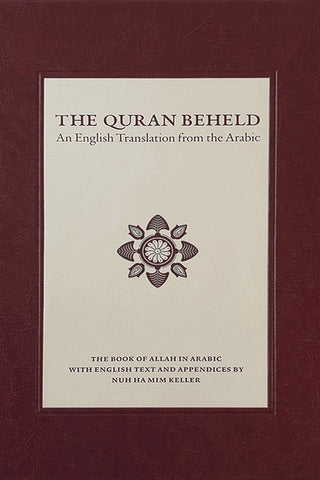
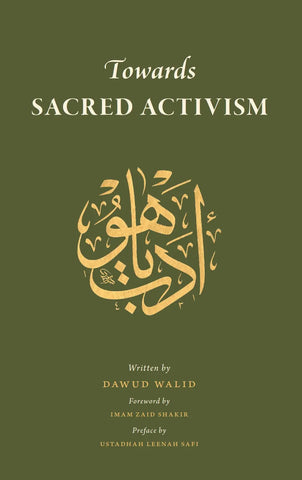
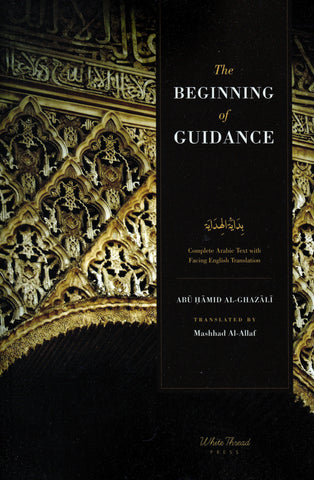
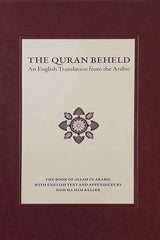
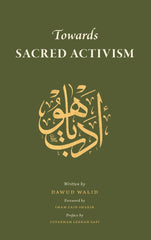
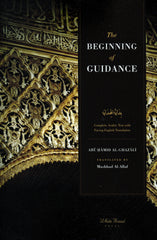
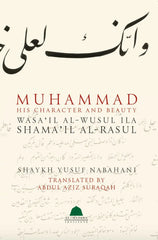
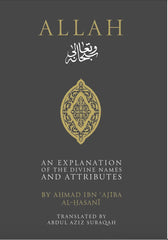
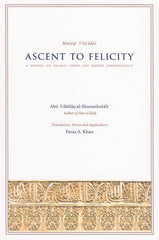
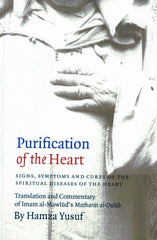
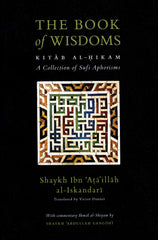
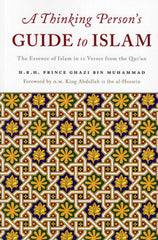
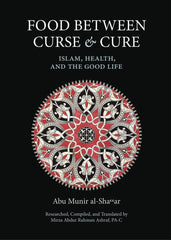
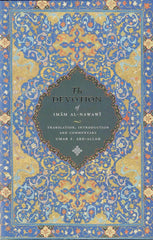
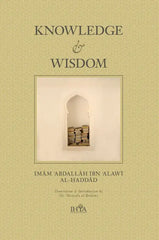
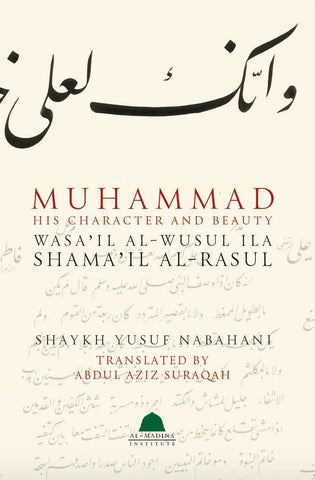
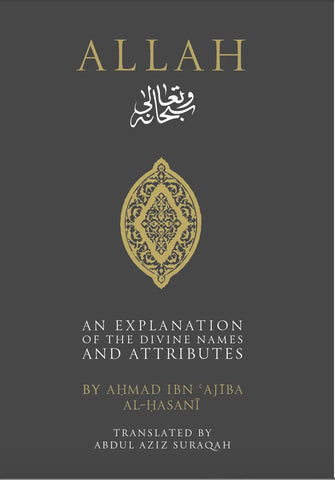
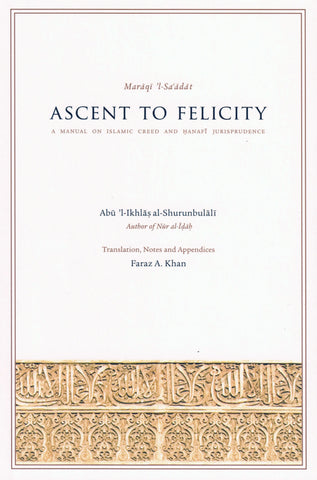
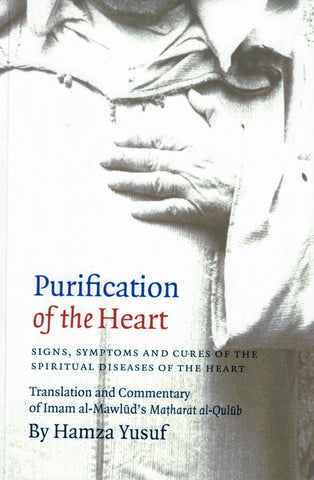
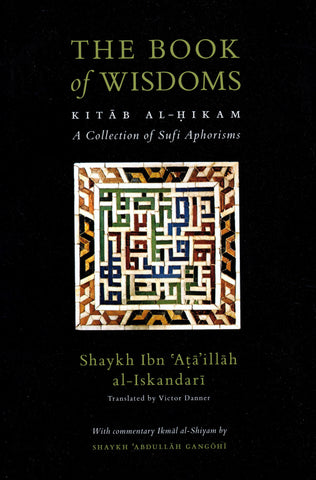
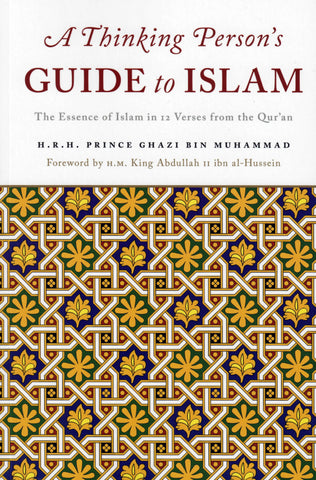
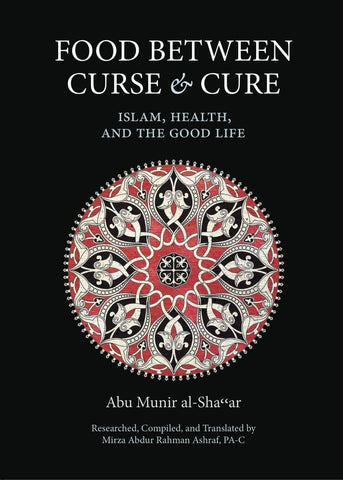
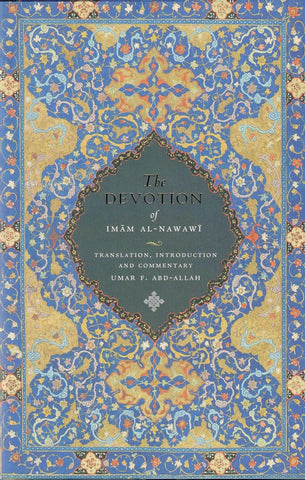
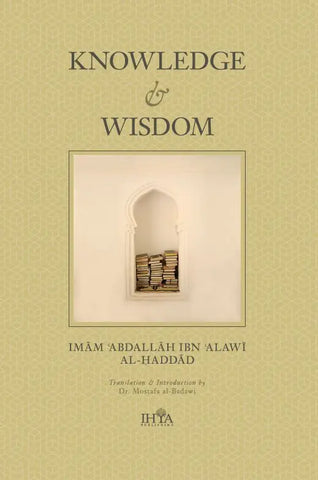
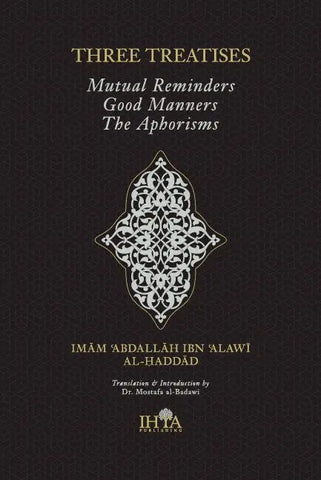
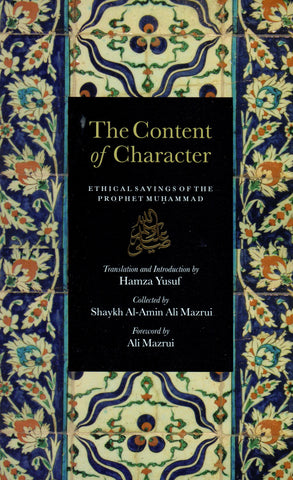
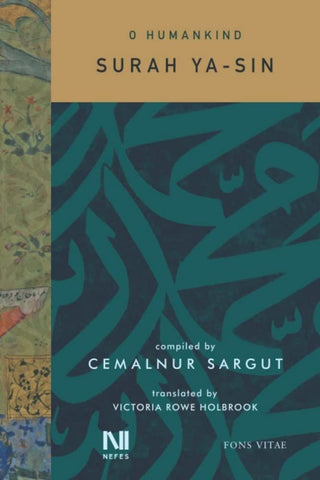
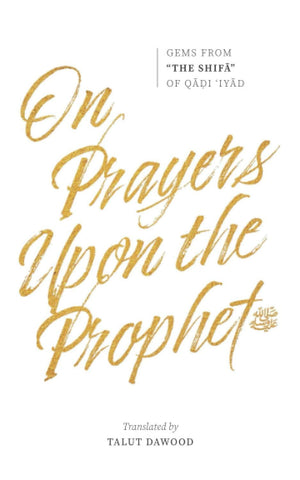

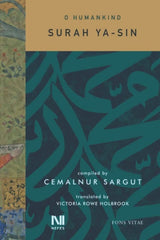
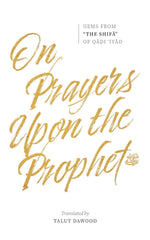

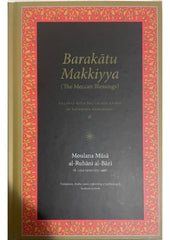
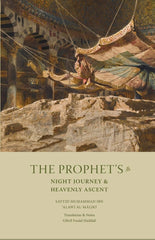

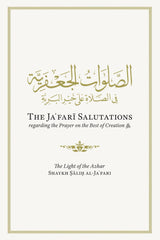
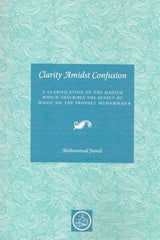

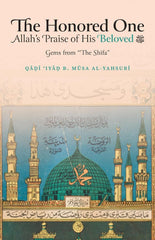
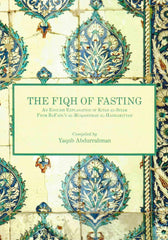

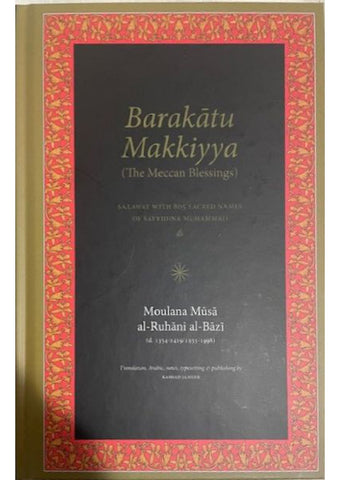
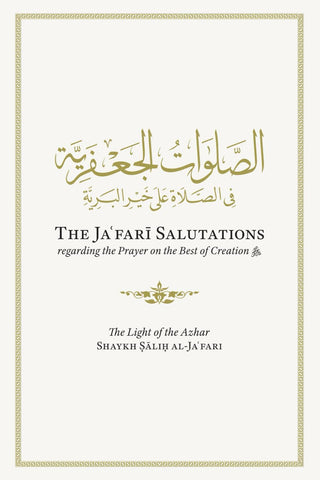
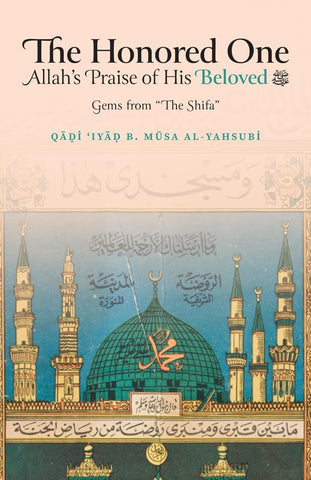
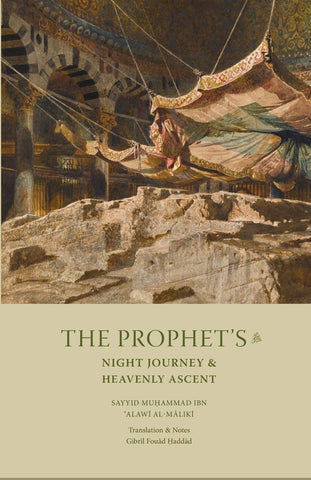
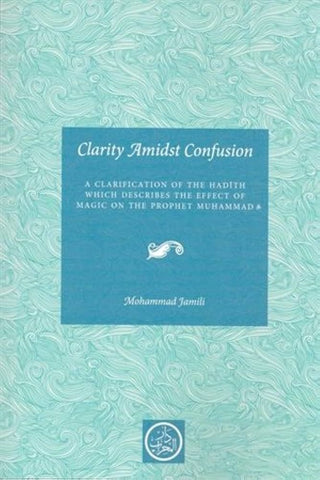
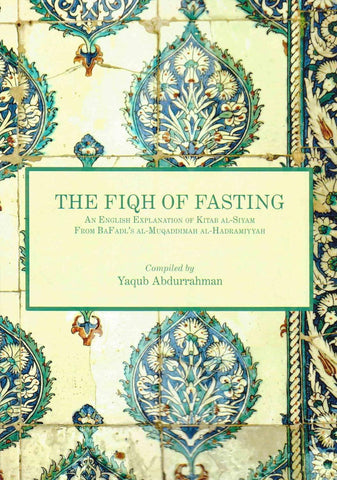




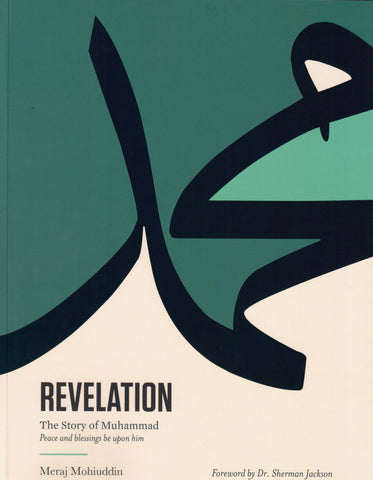
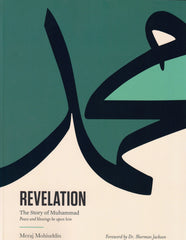
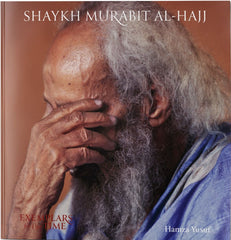
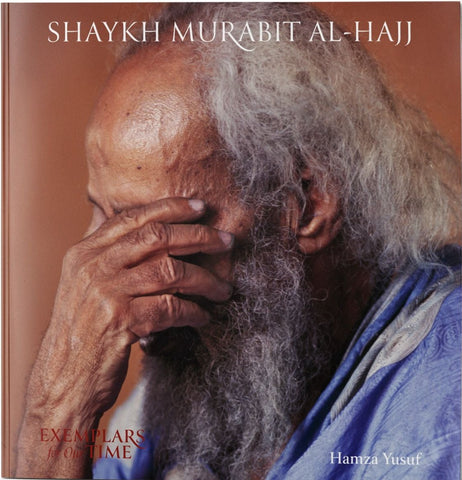

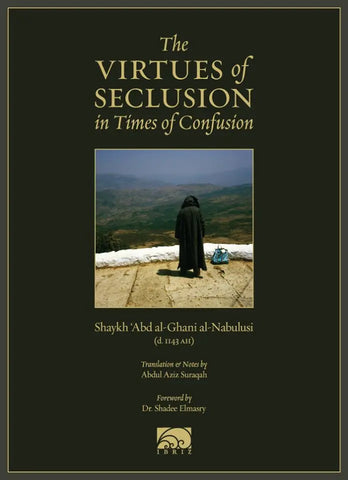
![Riyad al-Salihin [English Commentary] 3 Volume Set](http://www.meccabooks.com/cdn/shop/files/RAS4_large.png?v=1729301022)
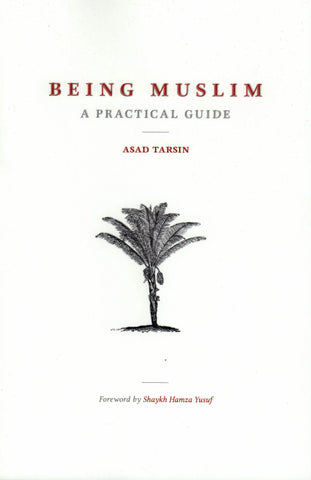
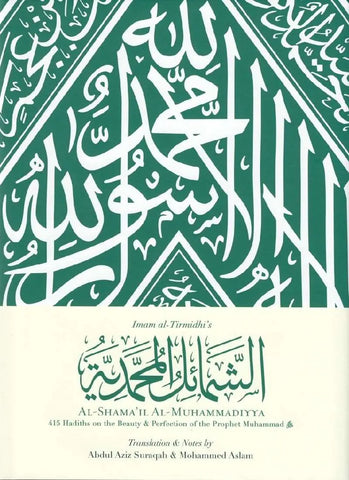



![The Book Of Remembrances [Kitab al-Adhkar] Turath Publishing](http://www.meccabooks.com/cdn/shop/files/The-Book-Of-Remembrances-_Kitab-al-Adhkar_-Turath-Publishing-40382944_large.jpg?v=1713602596)

















![Al-Hizb al-Azam [Illuminated Edition]](http://www.meccabooks.com/cdn/shop/files/Al-Hizb-al-Azam-_Illuminated-Edition_-White-Thread-Press-40453322_large.jpg?v=1713604858)






